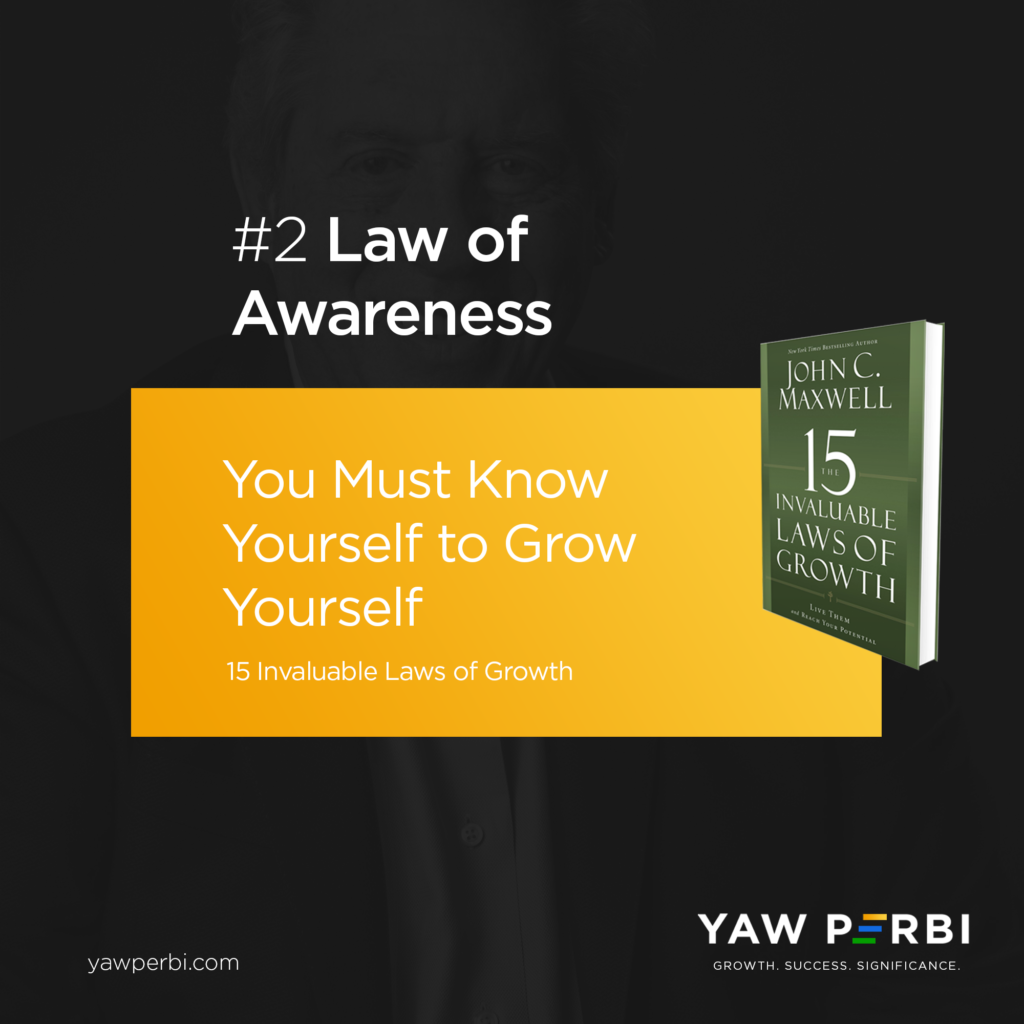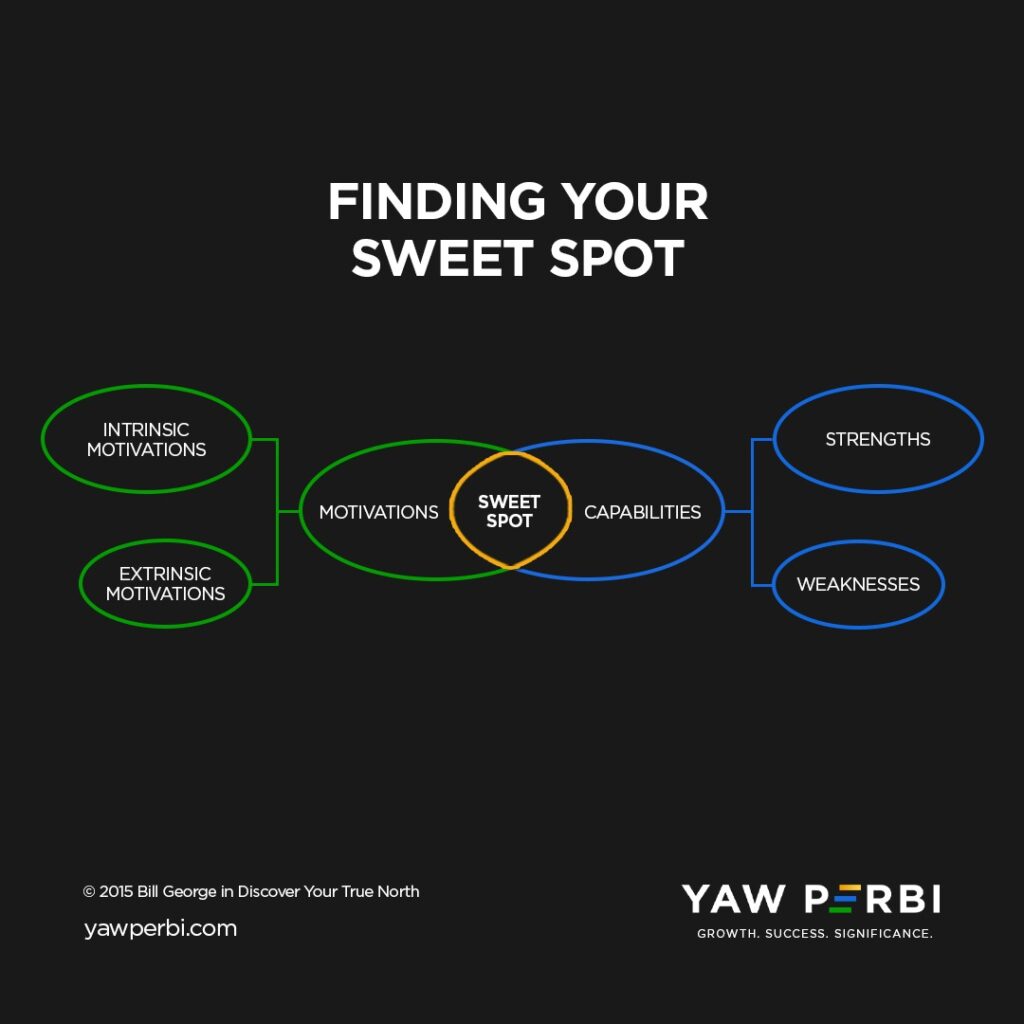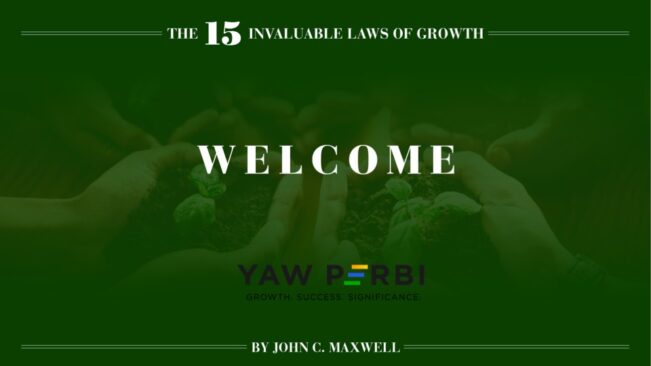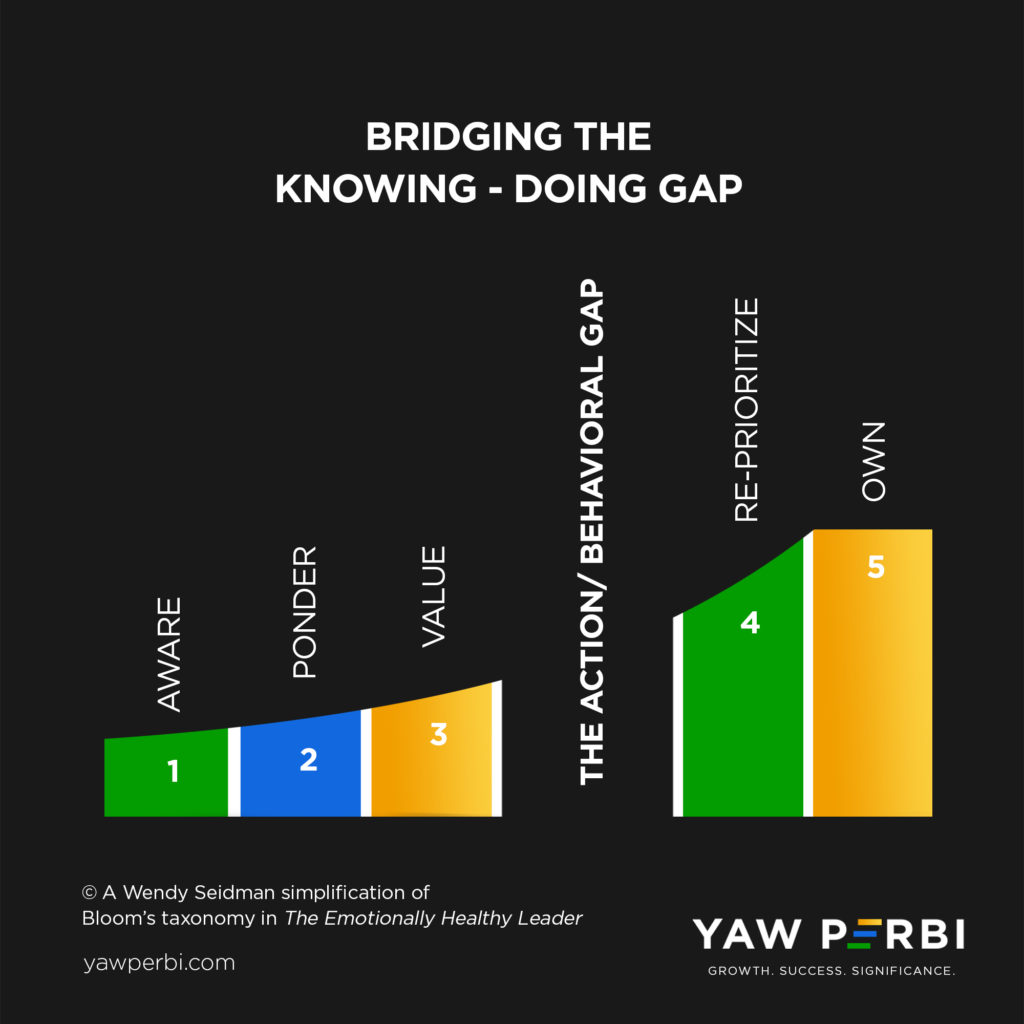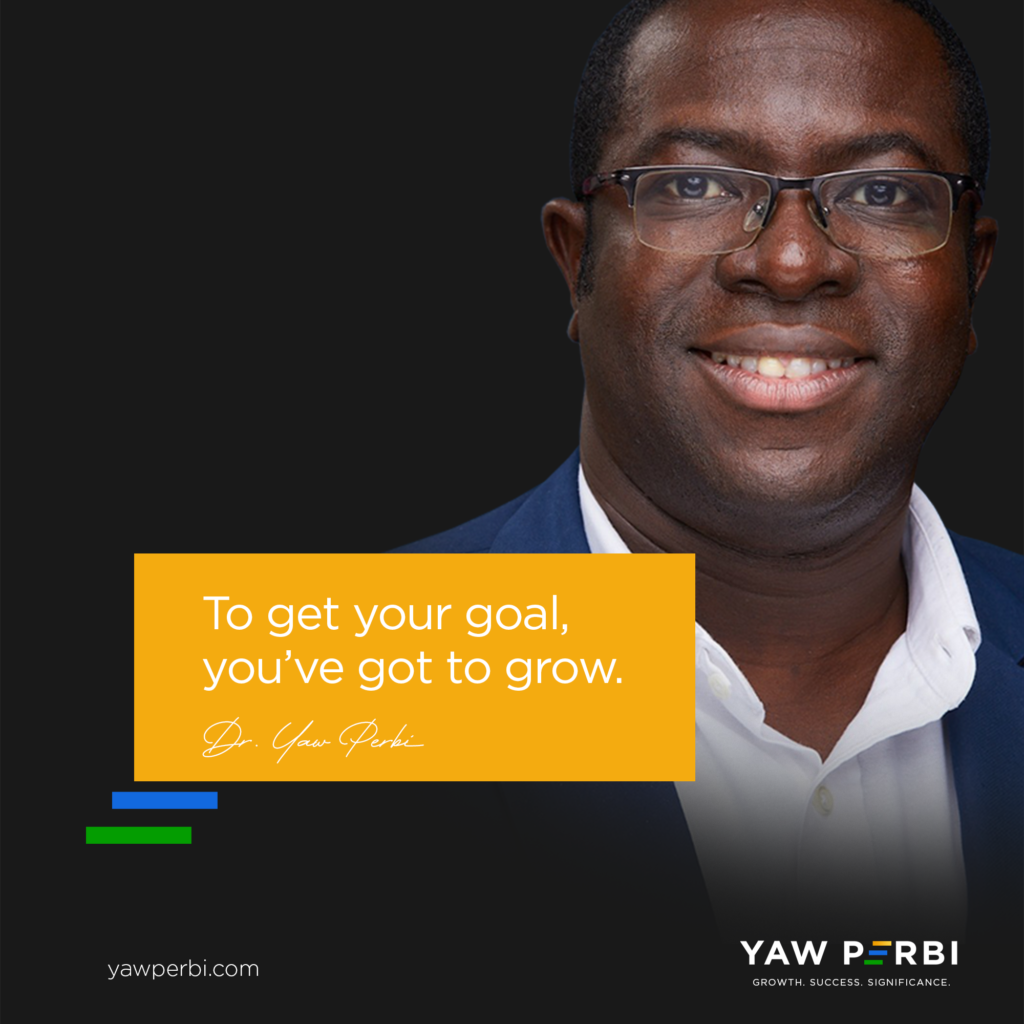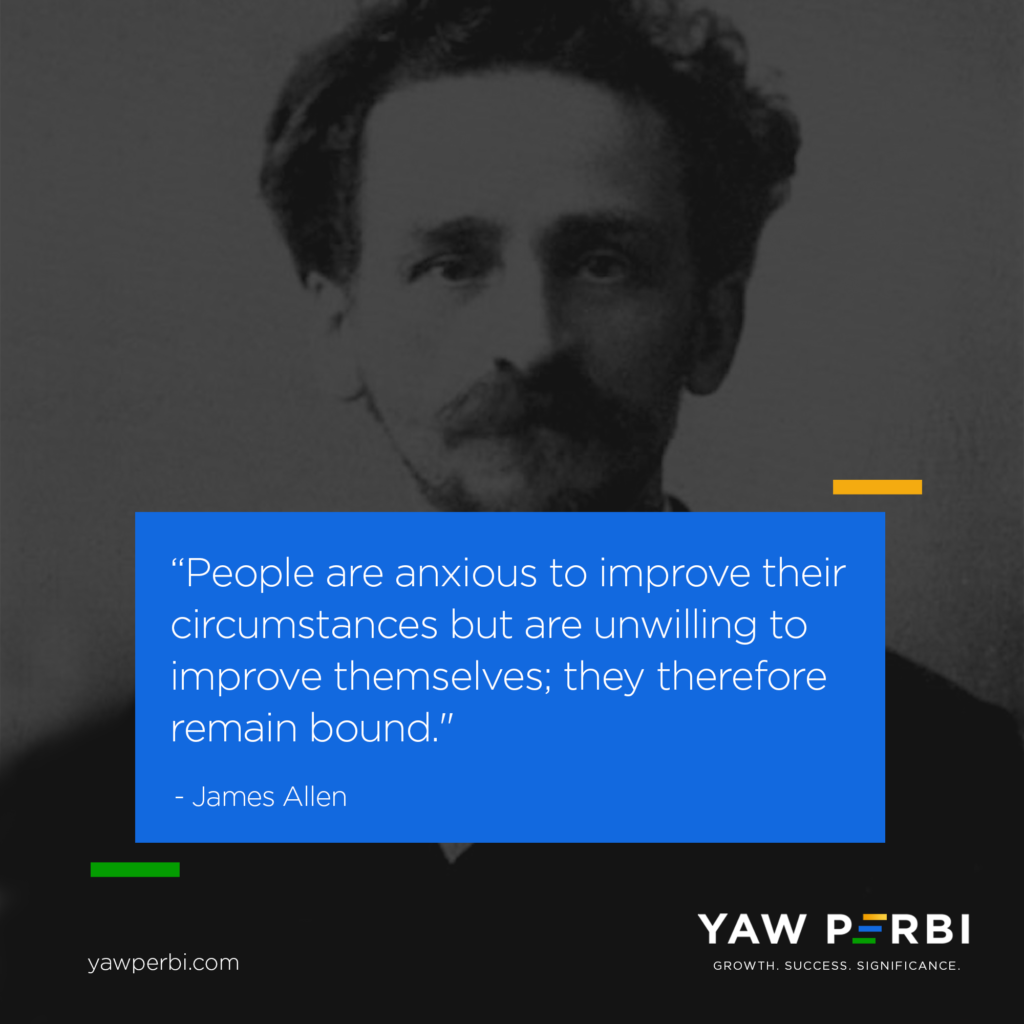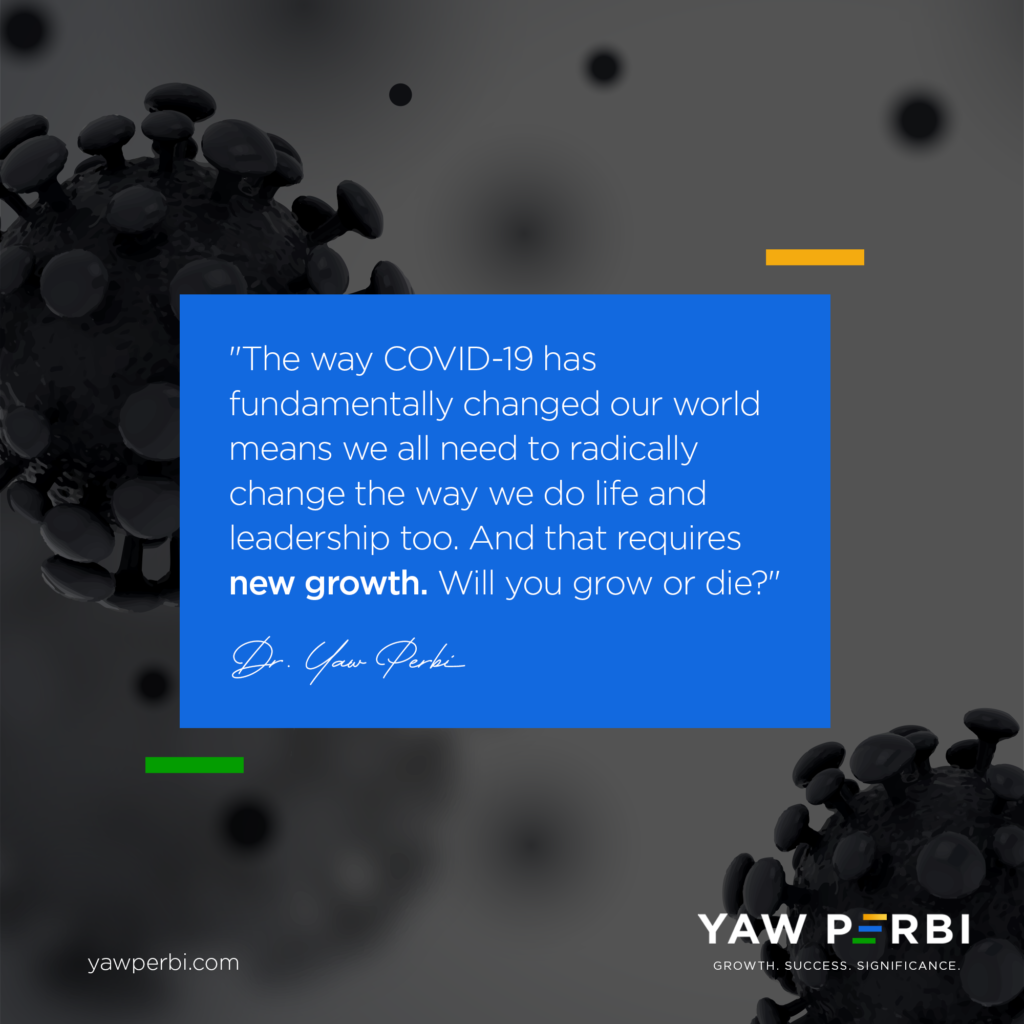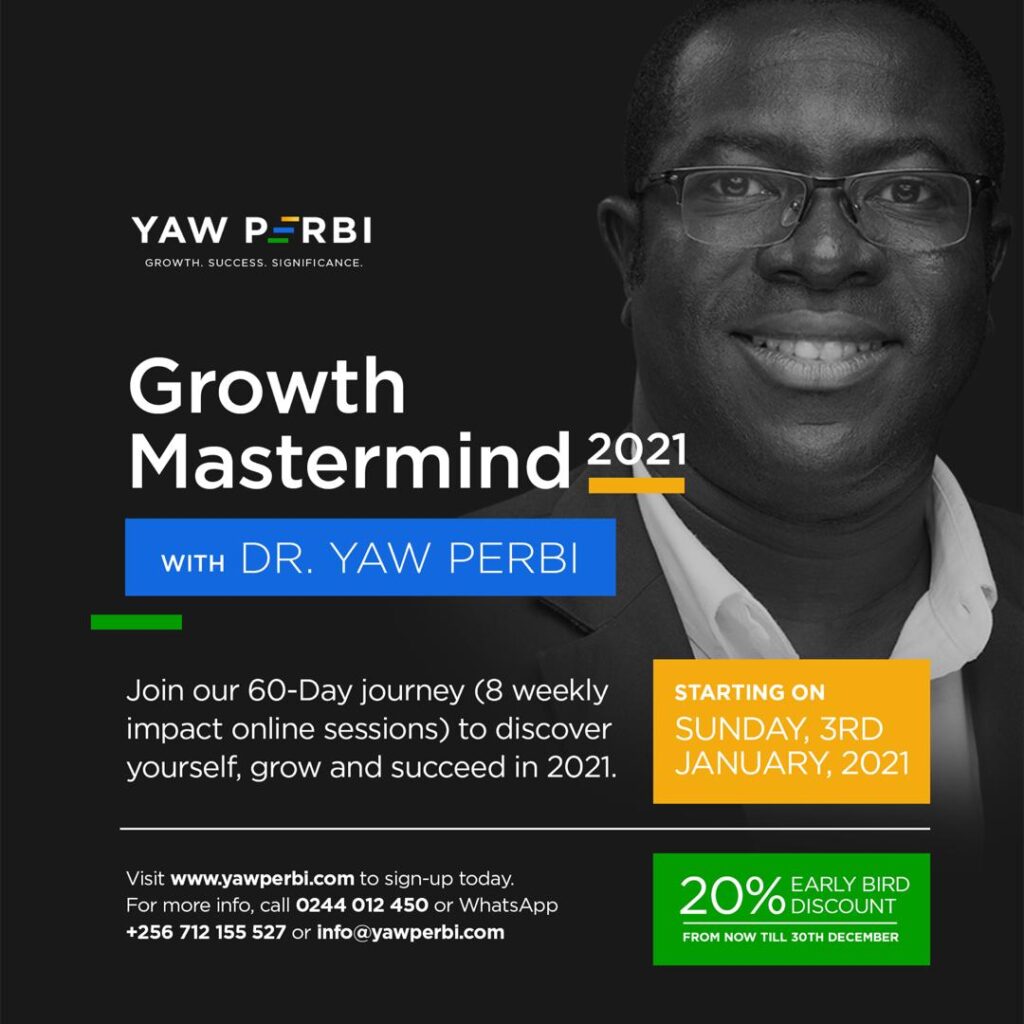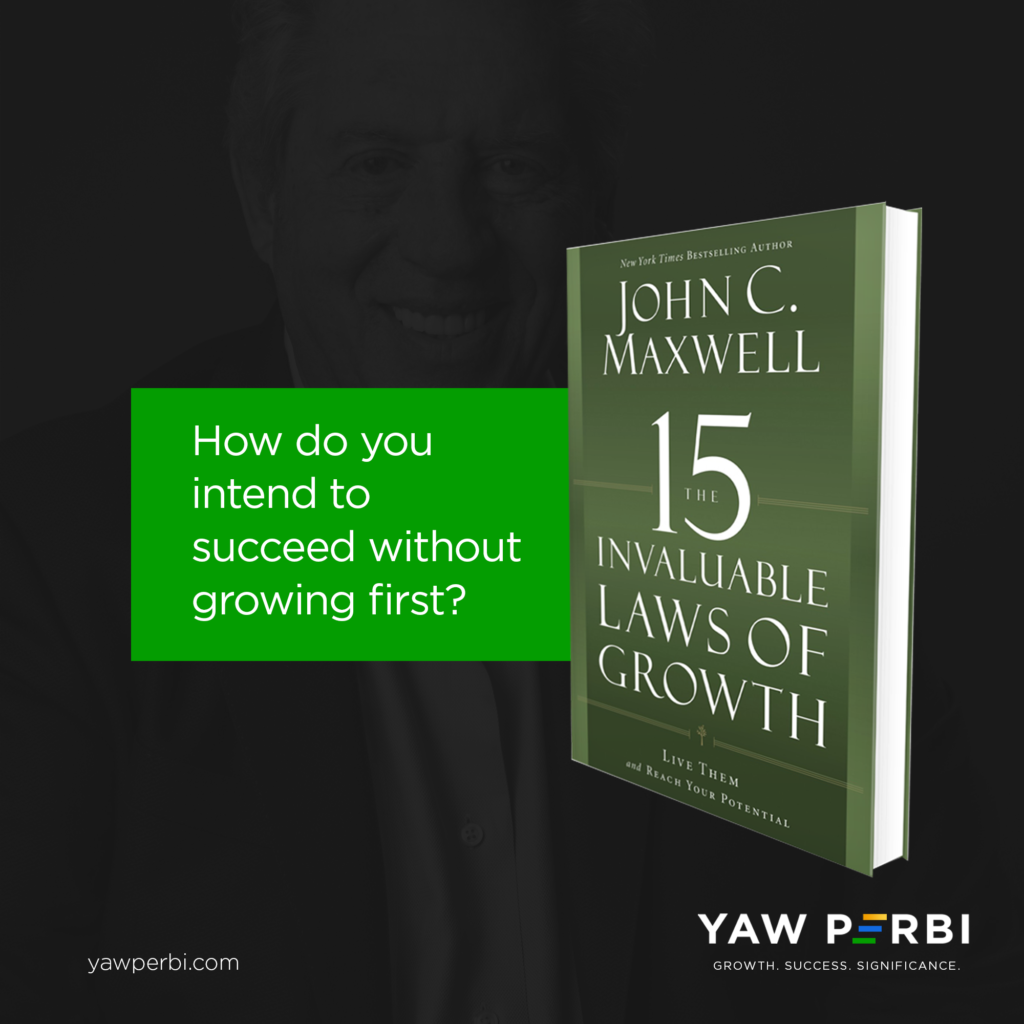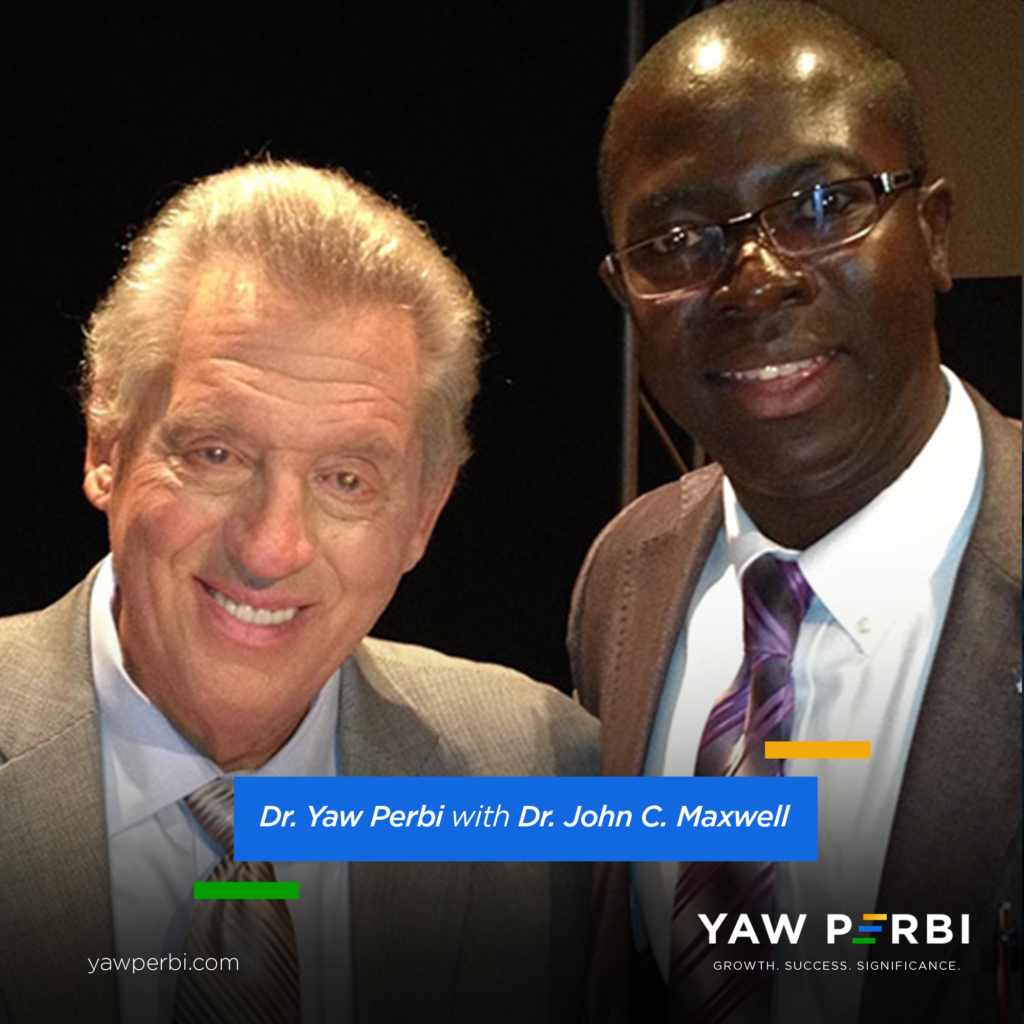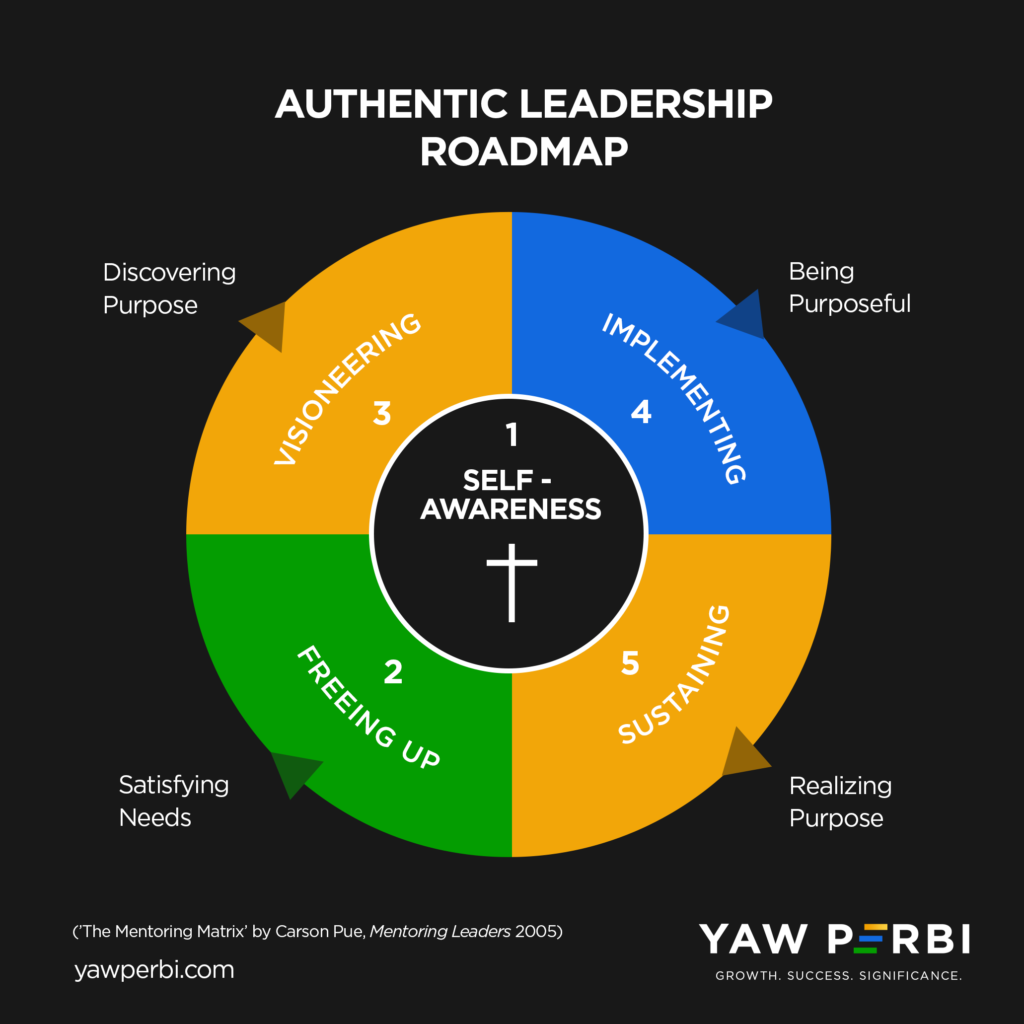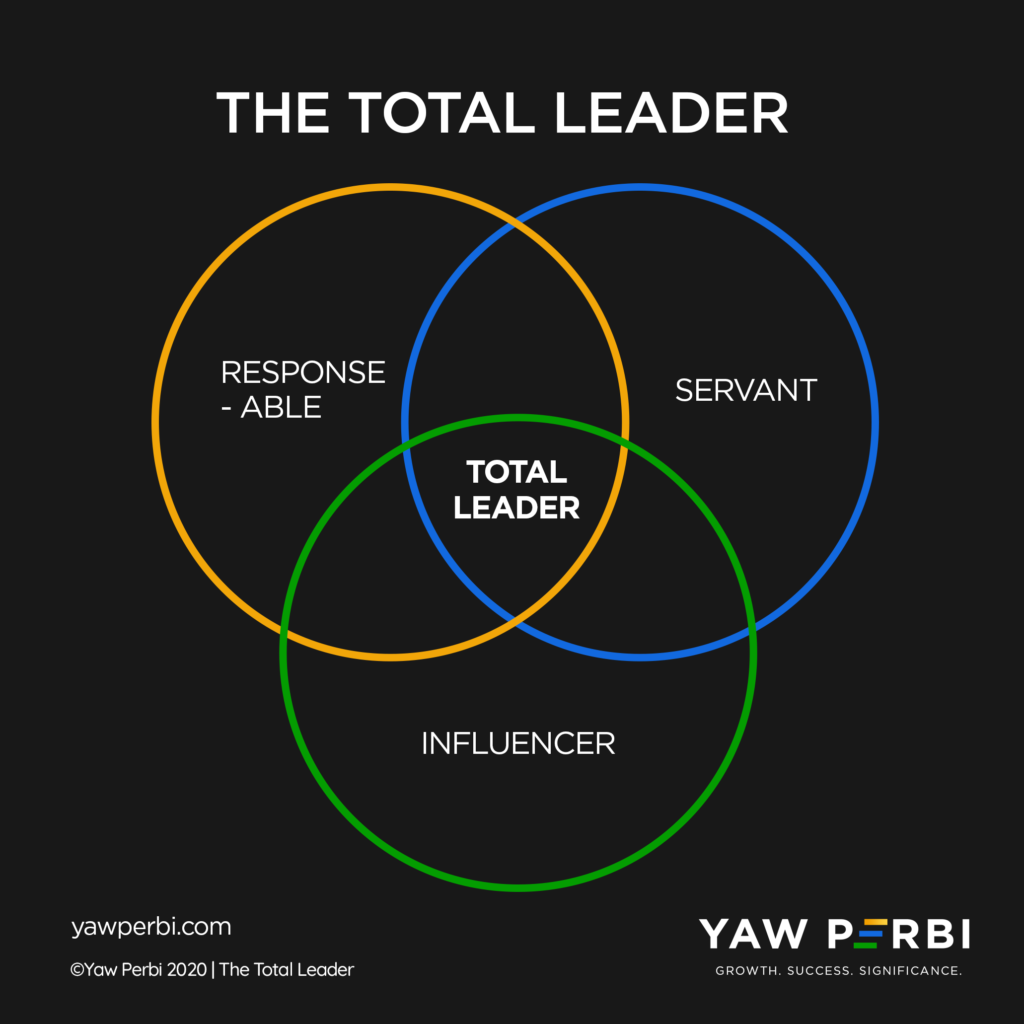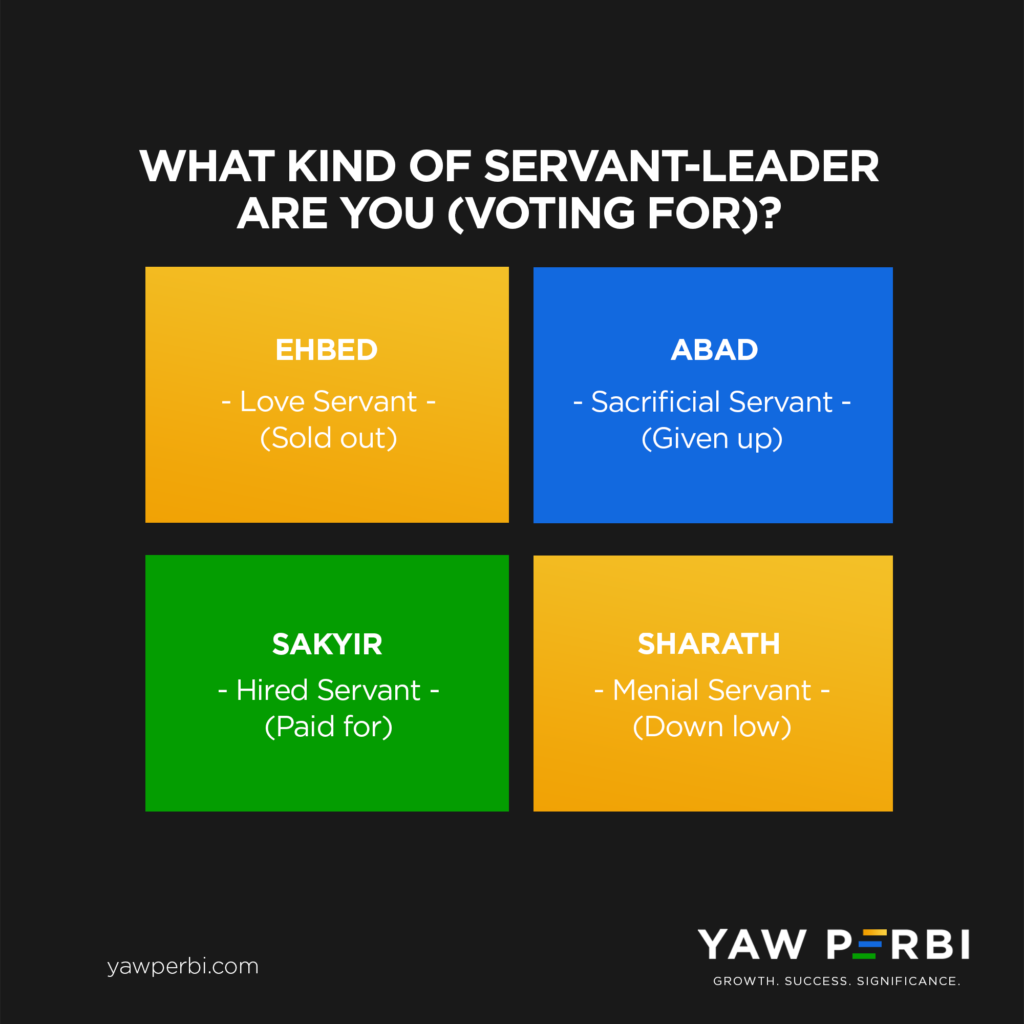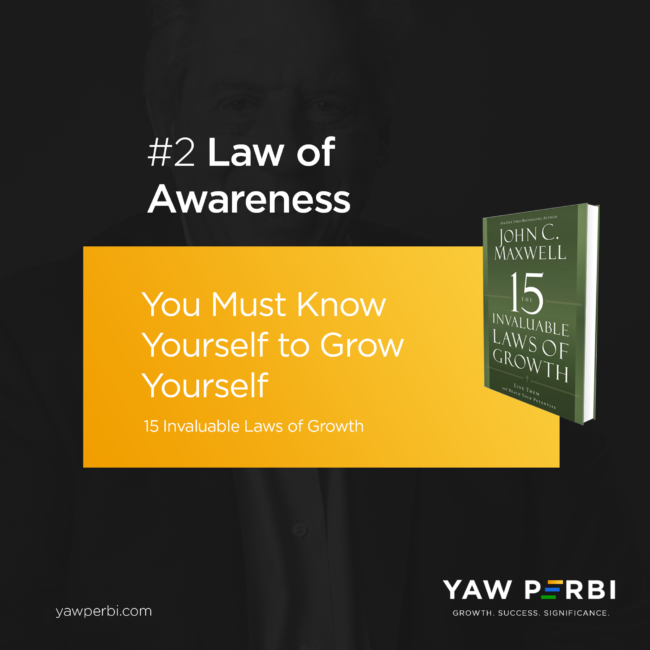
Four Pairs for Prosperity
There are just too many people stuck in a life determined for them twenty years earlier by an unaware and uninformed teenager obliged to choose a career course in high school or university. Yes, changing direction is a risk… but what if you don’t change? Which risk would you rather live with?
Do you like what you are doing now? What would you really like to do? As we delved into those soul-searching questions (and more) in exploring the Law of Awareness, the notion that you have to know yourself to grow yourself became crystal clear. “There is no point continuing to just do activities to fill my days,” said a U.S. Naval officer who has decided to suspend courses he was going to enrol in to now do a full and fresh audit of the direction of his life and examine his passions and gifts.
In the ensuing discussion a McNulty Prize laureate and serial entrepreneur shared how following her reflections at 40 she had just given up her Africa-wide regional role in a rich Europe-based NGO to start a new African impact investment venture with zero money! Why would anyone do that? Of course I also shared how I left medicine to pursue my passion for leadership development and Christian mission. It’s been more than a decade since and I have no regrets, none.
If a person sets out to run a mile, and three quarters of a mile ahead there is a cliff, should that person try to finish running the mile just because he started out to do so? As you ponder that question from the content of the 15 Laws of Growth mastermind group that all the people I’ve mentioned here are a part, I hope it becomes apparent how ridiculous it is to be bound to a trajectory determined twenty years earlier by an unaware and uninformed teenager obliged to choose a career course in high school or university. This is the time for true self-awareness and new growth. Yes, changing direction is a risk…but what if you don’t change? Which risk would you rather live with?
JACK WHERE ARE YOU?
Have you ever gone to a huge place, say a large mall of six floors, and wondered “what’s where and how do I get there?” Whenever I have, whether it’s in the huge malls of the USA, South Africa or the Philippines, I would hunt for a map of the place, typically mounted on each floor at vantage points. If you’ve used one of those before, the most striking marking and boldest text on it tends to be not the various potential destinations and routes but the sign that says, “YOU ARE HERE.” That is a huge inadvertent lesson in self-awareness. A big gap in my personal growth has been overemphasising goal-setting (where I want to go) and often overlooking self-awareness (where I am right now). I’ve almost always looked at the map and been nearly obsessed over where I want to go and not taking enough note of “YOU ARE HERE.” Yet in the words of Denis Waitely, “No one can produce great things if he is not thoroughly sincere in dealing with himself.”
The following are at least four pairs of things one should be aware of, first, and then align. Like a fork and knife, they should go together but often don’t. Yet unless they align, forget about the kind of exponential growth that leads to sustainable success.
1. WHAT YOU WANT & WHAT YOU’RE GOOD AT
What you dream of and/or desire must match with what you can do well. To be crazily successful you need to be doing what you’re good at so only entertain a dream in that direction. The key is to “discover your uniqueness; then discipline yourself to develop it” (Jim Sundberg). It is a curious observation from my mentor Dr. Maxwell, that “some people have an inherent ability to know know who they are and who they’re not. Others have to work hard to make those discoveries.” Poet and critic Samuel Johnson put it well, “Almost every man wastes part of his life in attempts to display qualities which he does not possess.” Are you still wasting time? No more! Get coached!
Although I realized a long time ago that my calling was leadership, communication and education, it took the significant crucible of a fatal road traffic accident to catalyze my resolve to move more fully into my purpose. It isn’t good enough to live out one’s purpose part-time because of a full-time job that pays the bills. When I coach, write, speak or train and make a difference in people’s lives I feel most alive. I feel “I was born for this.” I was! Claremont professor Mihaly Csikszentmihalyi, a pioneer in positive psychology, put it simply eons ago: “Find out what you are good at and what you like to do.”
2. WHAT DRIVES YOU & WHAT SATISFIES YOU
Many of the things that drive us are externally given or measured, like money, but these should align with what internally satisfies us as well. That is über powerful! Harvard professor Bill George lists things such as having power, a title, public recognition, social status, winning over others and monetary compensation as extrinsic motivators. Intrinsic motivations, on the contrary, says George, “are derived from your deepest inner desires, not the world’s adulation. They are the basis for your True North and are closely linked to your life story.” These include personal growth, satisfaction of doing a good job, helping others develop, finding meaning from efforts, being true to one’s beliefs and making a difference in the world.
Your sweet spot is the place where what drives you (extrinsic motivator) and what satisfies you (intrinsic motivator) align and synergistically combine with what you want (dream) and what you’re good at, for sure!
3. VALUES and PRIORITIES
Everyone has values, overtly or covertly; what we consider good and valuable. Unfortunately these are often violated by how we actually do life. As mentioned before it takes things like the accountability of a coach or mastermind group to gather the power to make the quantum leap from valuing something to re-prioritizing things in our lives to own it (action!). See here. When values and priorities converge, powerful things happen!
4. PERSONAL VALUES AND PRIORITIES & ORGANIZATIONAL VALUES AND PRIORITIES
The majority of people spend most of their waking hours at some workplace or the other, physical or virtual. The challenge is that, as Maxwell asserts, “if you and your employer are working at cross-purposes, success will be difficult to achieve.” Again, in an earlier blog on personal and corporate values, I was unequivocally clear: “I strongly advise individuals to make sure that their personal DNA aligns with the corporate DNA of whatever organization they work for/with (or seek to work for/with).”
SO! WHERE WERE WE?
First, find what you really want and align it with what you’re really good at! Then, align your extrinsic and intrinsic motivations. Thirdly, harness your values and priorities and finally make sure these personal values and priorities jive with your organization’s. Align these four pairs and you’re en route to a sustainably successful life, one of deep fulfilment and significance with no regrets. These are four pairs that must be aligned for prosperity but as you can tell, it all begins with a keen self-awareness.

American Shitocracy and African Shitholes
‘Shit hole’ status is not the preserve of any people group, state or nation. Seasons change. Kingdoms rise and fall with terrific and terrible leadership respectively. Great civilizations have come and gone. If Africa continues on a trajectory of principle-centred, values-based, effectual leadership and America continues on her trajectory of shit-based leadership for long enough the tables will turn!

“I’ll be watching because history is going to be made,” were Trump’s inspirational words to ginger his soon-to-be-desecrating supporters who forced their way into the Capitol to interrupt the democratic transfer of power. Photo credit: Roberto Schmidt/Agence France-Presse — Getty Images
Bit by bit we’ve seen the shroud of so-called American exceptionalism come apart. Rent piece by piece, she’s revealing her warts to a watching world, stuck at home. What she’s done well for over 200 years to conceal—and not wash her dirty linen in public either—a combination of democratized social media, a TRUMPeting emperor with no clothes and a plaguing pandemic have conspired to expose. Lynchings like George Floyd’s are not new; it’s the handy smart phones and social media apps at the finger tips that capture and broadcast these which are.
Last Wednesday’s attempted coup d’état at the U.S. Capitol was the nadir of the last four years’ declivitous decline from apparent democracy to real shitocracy. I am not one to use the s-word; I’m only playing on the words of the supposed most powerful man on earth. Many aspects of the attack on the ‘people’s house’ by armed rioters a.k.a. domestic terrorists dropped my jaws (and kept my mouth agape) but the most shocking was literally the filthiest of all: desecration of the House with faecal matter, well-known in ‘shit hole countries’ as ‘shit bombing’. Just when you thought America could sink no further.
The shit-hole-country-conferring president of the Divided States of America inspired this group of shit bombers.

Thieves of democracy scaling walls like thieves do, as in the words of the New York Times, “largely unimpeded by police as they stormed the Capitol.” Photo credit: Jason Andrew for The New York Times
Let me tell America(ns) how we, Africans, got shit holed: LEADERSHIP! A long string of shit hole leadership like you’ve now gotten in the Black House (it’s only painted white and so-called but we know it was built by Blacks). If Africa continues on a trajectory of principle-centred, values-based, effectual leadership and America continues on her trajectory of shit-based leadership for long enough the tables will turn! You know how I know? Because “everything rises and falls on leadership,” E-V-E-R-Y-T-H-I-NG, shit and all. And that is a principle; a timeless, fundamental law of the universe that is no respecter of persons: red or yellow, black or white.
‘Shit hole’ status is not the preserve of any people group, state or nation. Seasons change. Kingdoms rise and fall with terrible and terrific leadership respectively. Great civilizations have come and gone. And I mean, greater civilizations than America, and that dominated for much longer than the toddling USA. America could be tomorrow what we call “ancient Egypt” today. Or even the beggarly Greece today, yes, Socrates, Aristotle and Plato’s Greece of yestercentury. In the last decade Portugal found itself borrowing money from her former colony Angola.
Meanwhile, my Ghanaian-Canadian children today wonder what is so ‘Great’ about Britain. Brexit? As for America, in the last few weeks we’ve spent more time at our Family Altar repeatedly praying for political peace in America and for the eradication of ignorance and disease (COVID-19) there than we have prayed about any of these for Africa!
Now to my fellow Africans. In the light of how backward America has proven to be recently, perhaps it is beginning to dawn on you that we may not be as backward as they (and some others) would like us to think! After all, when our ancestors were building pyramids their European forebears were but Barbarians (note: barbarian or barbaric is still not a fluttering word in the English dictionary today).
At the very time when there were prolonged pre, para and post electoral tensions in America, even with a sitting president refusing to concede but rather raising false alarms of a rigged election, Ghana figuratively and literally came from behind to vote, certify results within 72 hours and has already sworn-in a new president (an occasion the American president nominated American officials to attend). Now, look who’s shit hole!
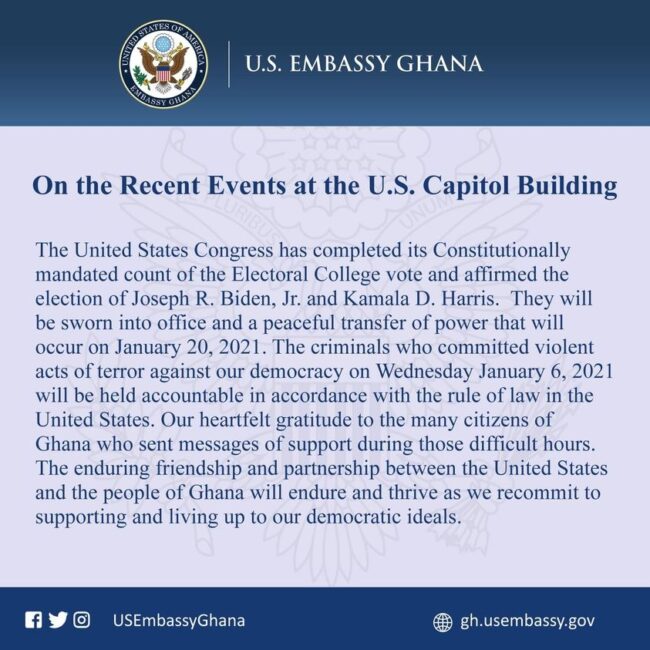
No one would’ve imagine such a notice from the U.S. Embassy in Ghana four years ago! “Our heartfelt gratitude to the many citizens of Ghana who sent messages of support during those difficult hours”? Wow!
Which is worse: being called shit hole or being shitty? It was America’s shitocracy that christened African countries as shit hole. But neither shitocracy nor shit hole is good enough for Africa or America. I have substantial interest in the prosperity of both peoples on both sides of the Atlantic–and so does the whole world stand to benefit. So upward and onward with godly, principle-centred, values-based, effectual leadership for the benefit of our peoples and to the glory of God. No more shit–shit holing, shit hollering or shit bombing. We were made for so much more than this.
Africa! America! African-Americans, arise, clean up and shine! Let our worst years be the last four; and our worst days among the last four too.
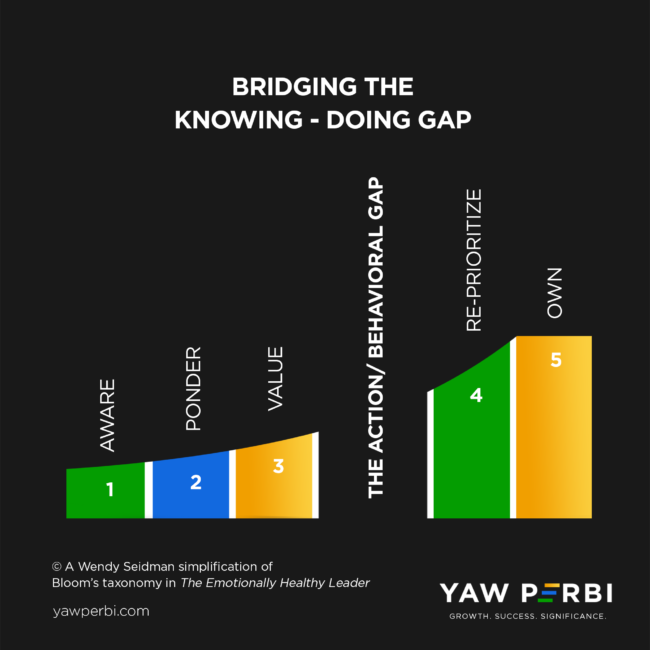
A Sure Way to Close the Widest Gap in the World
By now you should know for yourself that the widest gap in life or in the world is between knowing and doing. If we all put into practice every right thing we knew, our lives would be remarkably different, incredibly successful. Here’s why we don’t and what to do about it, especially in this season of ‘new year resolutions.’
What do a Microbiology PhD, Obstetrician, Civil & Environmental Engineer, Hotel HR Manager in Ghana, Marketing Executive at Ogilvy, Dentist in the United States, Consultant at Accenture, CEO of a Savings & Loans scheme in Uganda and a U.S. military personnel stationed in Italy have in common? And on top of all that, situated in three different continents on the surface not much; except these were all in the same room at the start of 2021 with one desire and purpose: to grow.
There’s no gainsaying that the dozen people constituting the first 15 Invaluable Laws of Growth mastermind group with YAW PERBI in 2021 know a lot. The combined expertise in the room is astounding; it is an honour just to be seated at the table with a leader with 18 years experience at Ghana’s Food & Drugs Authority and the rest of the crew.
We had all chosen to invest the time and money to be part of this mastermind because as Maxwell’s first Law of Growth makes plain, what he calls The Law of Intentionality, “Growth Doesn’t Just Happen.” In fact, “growth is [about] the only guarantee that tomorrow is going to get better”; that 2021 will be better than 2020. Although all these amazing professionals had a hint of this fundamental law of the universe, hence signing onto the mastermind group in the first place, by the end of the first 90-minute session this was so abundantly clear and weighing on us that my personal ‘statement of the day’ came from the FDA leader: “Growth is hard work.” Yes it is! And I’m so proud of these folks who are making an intentional, informed, sustained choice to grow themselves into success and significance!
SECRET TO CLOSING THE GAP
Perhaps no generation knows more, or at least has access to more knowledge in all sorts of media, than this current one. Yet by now you should know for yourself that the widest gap in life or in the world is between knowing and doing. If we all put into practice every right thing we knew, our lives would be remarkably different, incredibly successful. Richard Biggs says “the greatest gap in life is the one between knowing and doing,” a statement similar to John Maxwell’s, who puts it this way: “the greatest gap in the world is the gap between knowing and doing.”
While these already very knowledgeable folks will be even adding further to their professional knowledge vital new information about the Laws of Growth, what will catalyze and even guarantee their change and growth isn’t the HEAD stuff per se. Of course that’s where it begins but the problem is when it ends there, which is more often than note the case.
Considering the above Wendy Seidman simplification of Bloom’s famous taxonomy, the secret to the mastermind participants moving from abundant knowledge to abundant living by doing what they know they ought to do to grow will be as follows (this is the same for you if you intend to finally do something with all you already know you ought to do):
1. AWARE: This is a HEAD thing. Many of us begin from not even knowing what we don’t know, right? “Oh! So there are Laws?” ”Ei! And there are Growth Laws in particular?” right? How can people plan to do what they don’t even know in the first place?
2. PONDER: All of us are going to have ample time in between meetings to THINK about these laws but especially when we meet, as the facilitator I’ll be applying the major tool of a coach–questions, questions questions–to help clarify and deepen the pondering process. I say understanding is the product of pondering. Many times we don’t do because we don’t understand. But thus far, this is all still a HEAD thing.
3. VALUE: When folks actually begin to value that thing they’ve become aware of and have pondered, this is when things have travelled from the head down to the heart. It’s now a HEART thing. “Hmmmm… it must be important.” “Hmmm it may be a good thing oo…” A value is what you value, right?
I tell you, if “the greatest gap in the world is the gap between knowing and doing,” then the longest distance in the world might be between the head and the heart! Anatomically it’s only a few centimetres apart but metaphorically, that’s another matter. Yet it is necessary to value a thing, and feel it to move us to do anything. Do you see the word ‘motion’ in emotion?
Yet after our new awareness and pondering have dropped into the heart , there’s still a GAP—nothing changes in our action or behaviour, yet. It’s still not a HAND thing (action or behaviour) until usually with the help of accountable relationships (like coaches and mastermind compatriots) you gain the quantum energy to scale the action/behavioural gap to the land of re-prioritization. This is the longest and deepest gulf in the world, contributing the most to the gap between knowing and doing.
4. RE-PRIORITIZE: When you re-prioritize, you actually re-organize yourself, move others and things around you to make that new pondered and valued awareness actionable! Until you have re-prioritized, usually evident in the commitment of time, money (and other resources) and energy/effort, nothing changes.
5. OWN: I can give you an example of an area in which this entire process from awareness to ownership happened in my own life. It took me about six years to finally re-prioritize and start taking a proper weekly sabbath (not just a day off; to really stop all my work, rest, contemplate on God, delight in Him and his gifts). I can assure you that if I had a consistent, formal coach or mastermind group I was accountable to, it wouldn’t have taken me six years to make the quantum leap I needed to.
CONCLUSION
After seeing all these long distances and deep gulfs, can you understand why doing what we know is so hard. Come to think of it, who climbs the highest peaks in the world alone? You need a buddy if you’re to make it! That’s why this 15 Laws of Growth mastermind is a blessing! As co-travellers, we’ll all be AWARE of the same laws, PONDER these things (especially through the clarifying questions we’ll all be responding to), we will be expressing what we VALUE to each other’s hearing … and here’s the trick: we are there to encourage each other and hold each other accountable to make the leap to the other side of RE-PRIORITIZING and OWNING our growth and success.
Already, within the first 24 hours of the start of the mastermind, with everyone’s consent we formed a WhatsApp group through which we keep informing and reminding, pondering, valuing, and holding one another accountable to re-prioritize and own our growth journey to success over the next 60 days.
A sure way to close the widest gap in the world is accountable relationships to make the leap from merely valuing new knowing to re-prioritizing things in our lives towards new doing. So now you are aware why we generally don’t do what we know we should or even say we would–and what to do about it–especially in this season of ‘new year resolutions.’ Happy new year!
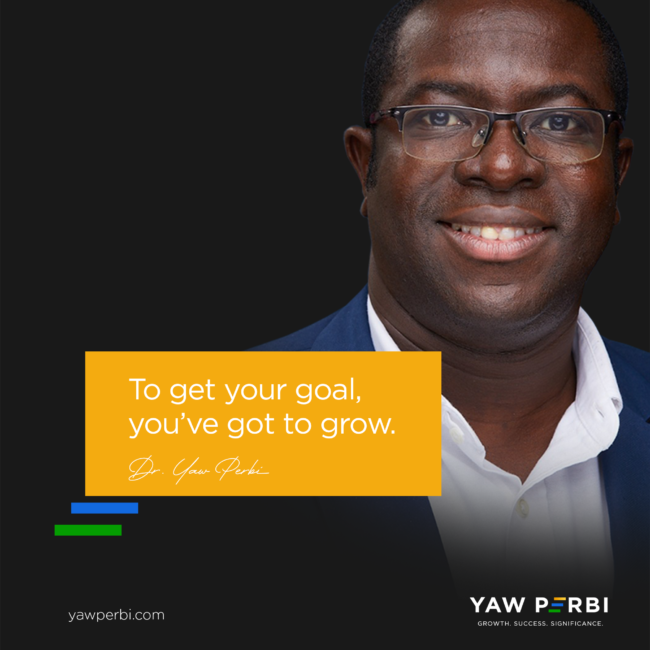
TO GOAL OR GROW? That is the question!
This is so counterintuitive that I don’t beat myself too much for almost completely missing it earlier in my life. I’m glad I have clinched that now: to grow an enterprise, grow people; to hit your goals focus on growing yourself and on the growth process.
GROW ME
Like most people I know, I love the word potential. Potential is the difference between who/where you are now and who/where you could be. Success, then, would be getting to who/where you could be. Being a go(al)-getter, one of the biggest mistakes I’ve made in life has been to keep the target or goal so much in mind and trying to figure out various strategies and timelines to hit it but neglecting the most important thing and most important one: growth and me. John Maxwell puts it succinctly: “To reach your potential you must grow. And to grow, you must be highly intentional about it.”
No matter the systems and structures, tools and technologies, courses and cash one gathers to hit a goal, unless there is investment in the growth of the person(s) involved, the goal is unlikely to happen. To achieve a goal, invest in growth of those the fulfillment of the goal depends on. To grow an enterprise, grow people.
Try something else in the new year: keep the goal in mind but focus on you (or whoever it depends on) and focus on a growth process. Let’s see what happens. I take my mentor John’s counsel seriously: “If you focus on goals, you may hit the goals, but that doesn’t guarantee growth. If you focus on growth, you will grow and always hit growth.” This is how to win, 100% of the time!
Here’s a paragraph from John’s 15 Invaluable Laws of Growth, which at the start of the new year I take a selected few through, that makes the point:
“If you want to discover your purpose, you need to grow in self-awareness. To become a better human being, you need to grow in character. To advance in your career, you need to grow in your skills. To be a better spouse or parent, you need to grow in relationships. To reach your financial goals, you need to grow in your knowledge about how money works. To enrich your soul, you need to grow spiritually.”
In similar fashion, as James Allen wrote in his classic As a Man Thinketh, “People are anxious to improve their circumstances but are unwilling to improve themselves; they therefore remain bound.” Get it? To get your goal you’ve got to grow.
GO WITH ME
Now, assuming you’ve agreed with me that you’ve got to grow to succeed, then the next logical question (in all probability) is how do I grow?. Well, you need to know the principles (laws) governing growth and have a plan and process to grow. Key to this plan and process is, again, people.
They say “we become the combined average of the five people we hang around the most.” Take a quick inventory right now. Depending on who your average five turn out to be, you must be pretty excited or pretty disappointed right now.
Apart from becoming a growing person yourself (towards your goals), you also need growth people, to stimulate, guide and guard your growth. This may be in the form of an accountability friend, a supportive spouse, an executive coach, or a small group like a mastermind.
I like to say that where two or three come together ‘magic’ happens. It is true. No matter how brilliant the ideas I think I have are, somehow when I meet with a group of people to discuss it the final outcome is much much better than my best ideas. It goes without saying that all of us are better than any one of us, any day! That is what Napoleon Hill discovered (mentioned in his 1925 book) and called a” mastermind”–when two people come together they create a third, invisible mind which is greater than the sum of the other two.
So for ideation, encouragement and accountability, everyone needs someone to come alongside them in their growth journey towards goal-getting.
CONCLUSION
To goal or to grow? That is the question. This is so counterintuitive that I don’t beat myself too much for almost completely missing it earlier in my life. I’m glad I have clinched that now: to hit your goals focus on growing yourself and on the growth process. Even if you don’t hit your goal, you will hit your growth.
Be goal-bound (as in, headed towards your goal) not situation-bound (as in, stuck where you are) by being growth-bound (heading towards growth and sticking to growth). Set your goal alright but then focus on the growth it will take. To hit goals, focus on the person(s) involved and on the growth process. To get your goal you’ve got to grow. This is how to win 100% of the time!
Post Script
If you want to see if there’s still room for you in the 2020 Growth Mastermind click here.
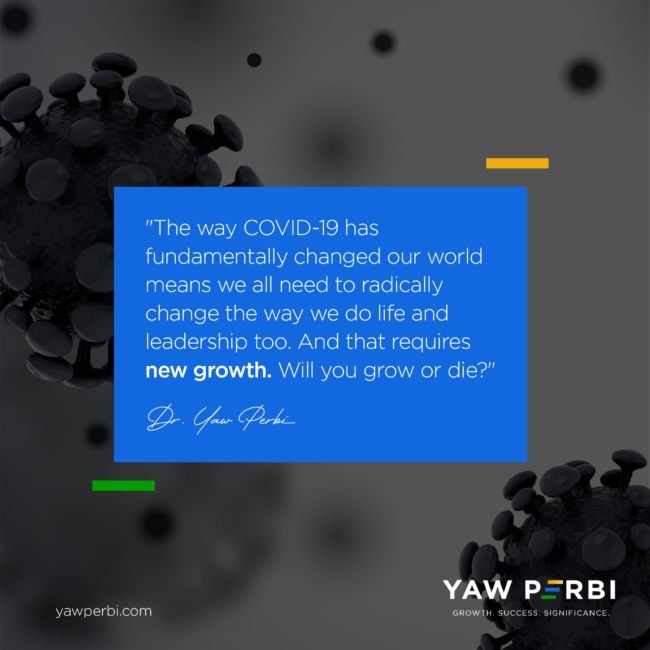
Festival of Nine Lessons & Corona
“The novel coronavirus is not just something for leaders to ”get through” for a few days or weeks. Instead, we need to treat Covid-19 as an economic and cultural blizzard, winter, and beginning of a “little ice age”—a once-in-a-lifetime change that is likely to affect our lives and organizations for years,” says Andy Crouch et al. I concur.
Just before Christmas 2020 my lawyer-banker friend and fellow John Maxwell Certified Trainer/Coach, Samuel Anim Esq., asked that I join him do an autopsy of the pandemic year 2020 live on Facebook/Youtube to draw leadership lessons. I was honoured and humbled. Honoured because it is a privilege to offer thought leadership and there is a myriad of leadership experts to choose from. I was humbled because not only do I not know all the lessons from Covid-19, I am still evaluating and learning from what I would perhaps call “the strangest year of my life.”
Nevertheless I managed to throw a few of my reflections together and gave it a funny title. Since around that time of the year there is the traditional Festival of Nine Lessons & Carols I thought of making this a Festival of Nine Lessons & Corona. Certainly there are more than nine leadership lessons from this Coronavirus pandemic year but here are some:
1. EMBRACE PARADOX
Perhaps no one and nothing captures the paradox of 2020 like Charles Dickens and his classic phrase, “It was the best of times, it was the worst of times” (from A Tale of Two Cities). This same 2020 year, over 1.67 million have died and 42.6 million have recovered. You may have lost someone to COVID-19 but you are alive. I’ve been stuck at home but I’ve had the longest unbroken quality bonding time with my family ever! We lost our family’s physical library services business but gained online business five times the physical capacity. Whole old industries, like aviation, have been decimated but whole new industries have emerged and are booming like Zoom. 2020 has been catastrophic yet catalytic.
Welcome to leadership. Embrace paradox. Think of the paradox of a servant leader, as a prime example of leadership paradox. True leadership is almost always straddling two seemingly opposing worlds, something Bob Fryling describes as “the leadership ellipse” because an ellipse “is defined by two distinctly different focal points that are of equal importance. One point is not inferior to the other, and both are needed if there is to be an ellipse.” I previously blogged about this in more detail here.
“It was the best of times, it was the worst of times, it was the age of wisdom, it was the age of foolishness, it was the epoch of belief, it was the epoch of incredulity, it was the season of light, it was the season of darkness, it was the spring of hope, it was the winter of despair.” ― Charles Dickens, ‘A Tale of Two Cities’
If leadership has always been about managing the tension of tasks or people, money or mission, the present or the future, inner spiritual longings and the outward needs of the group we lead, being and doing, community and cause, truth-telling and putting the right spin on things, to live in the world without being of the world, to be faithful or fruitful etc. then all of these have been put on steroids in a para and post-Covid world.
I have said before and I repeat: “the degree to which one is able to be comfortable with and live, love and lead well in the tension of this and that, yin and yang, determines their ultimate leadership success or otherwise. From my little experience and research, the best leaders in the world are those who are not only able to get comfortable with being uncomfortable living in such tensions but mastered the art of dextrously handling both well.” The post-Covid world leaves us no choice. Embrace paradox or die.
2. MAINTAIN THE MISSION, MUTATE THE MEANS
You and yours don’t want to end up like the Choluteca Bridge in Honduras. It was initially built in 1930 and reconstructed in 1996 to withstand tough weather conditions, including hurricanes. Well, two years later, in 1998, the bridge did prove its mettle, withstanding the category five storm, Hurricane Mitch, that devastated Honduras. Buildings were destroyed and roads wiped out but the bridge survived in near perfect condition. The only problem was that there were no roads for it to connect to anymore (roads wiped out at both ends) and the strong winds of the hurricane had caused the river to carve out an entirely new path that no longer ran under the bridge!
Think about it: a bridge connecting to nowhere and no one; and over nothing! If a bridge is no longer a way or a means to a desired end, then what is it? Similarly, if your pre-Covid means are no longer effective post-Covid as ways to deliver your mission, then of what use are they?
You certainly don’t want to lose sight of your vision or your grip on your mission but when it comes to your strategies, your ways and means to accomplish your mission, you don’t ever want to be dogmatic about that. In matters of mission, be as solid as a rock; but regarding the means flow like a river.
THE OTHER SEVEN LESSONS
3. Global community is the real deal context of leadership
4. Capitalize on era of Business without Borders
5. Heed the Harm to our House (Earth)
6. Inequities, Inequalities, Integrity-lessness will be exposed with time
7. Reflective lifestyle is the must-have rhythm of leadership
8. Become and raise agile “VUCA Prime” Leaders (VUCA is an acronym for Volatile Uncertain Complex Ambiguous)
9. HOPE is the real vaccine.
For further details of each lesson, watch the full video here.
CONCLUSION
If there is any one of these nine Covid-19 life and leadership lessons you need to grow in for a more successful 2021 you’re in good company. Join me. Come to the growth table. Join the 15 Invaluable Laws of Growth January journey in the form of a mastermind group of just 15 high level executives. Register right now here. The way COVID-19 has fundamentally changed our world means we all need to radically change the way we do life and leadership too. And that requires new growth. Will you grow or die?
Post Script
Earlier in the last quarter of the year I shared my faith-based Covid-19 reflections vis-a-vis Christian mission with pastors and church leaders here.
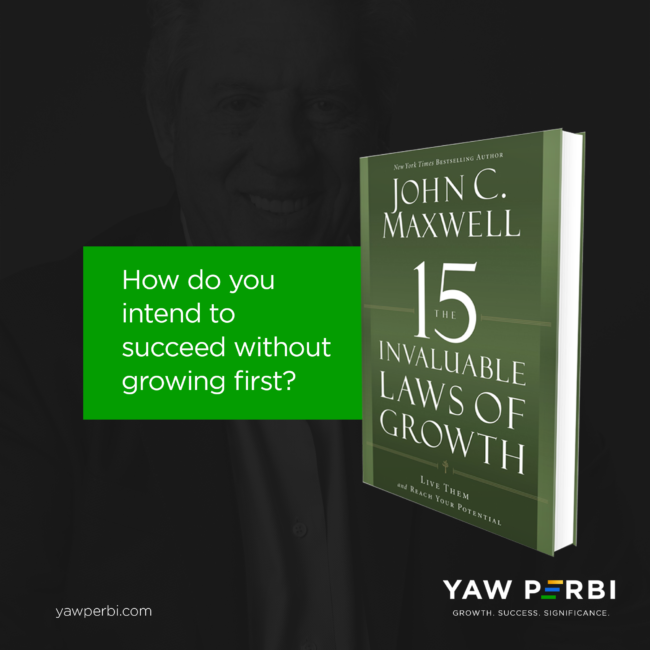
THE THING ABOUT LAWS | The ’15 Invaluable Laws of Growth’ Mastermind
Yes it’s a free world and humans are at liberty to do pretty much whatever we like. Or… well… maybe that’s not entirely accurate. There are laws or principles that have been here before us which we defy to our own hurt, irrespective of how noble our intentions might be. For example, some people intend to succeed in life without first growing. Forget it. It’s a law.
OF BATTLESHIPS AND LIGHTHOUSES
My all-time favourite story to illustrate the fact that there are fixed laws that govern life in our universe and that they don’t (and won’t) change to suit us but rather we ought to alter our lives to conform to them is this one told by Frank Koch, an experienced man of the seas, in Proceedings:
Two battleships assigned to the training squadron had been at sea on maneuvers in heavy weather for several days. I was serving on the lead battleship and was on watch on the bridge as night fell.
The visibility was poor with patchy fog, so the captain remained on the bridge keeping an eye on all activities.
Shortly after dark, the lookout on the wing of the bridge reported, “Light, bearing on the starboard bow.”
“Is it steady or moving astern,” the captain called out.
Lookout replied, “Steady, captain,” which meant we were on a dangerous collision course with that ship.
The captain then called to the signalman, “Signal that ship. We are on a collision course, advise you change core 20 degrees.
Back came the signal, “Advisable for you to change course 20 degrees.”
The captain said, “Send, I’m a captain, change course 20 degrees.”
“I’m a seaman second class,” came the reply. “You had better change course 20 degrees.”
By that time, the captain was furious. He spat out, “Send, I’m a battleship. Change course 20 degrees.”
Back came the flashing light, “I’m a lighthouse.” We changed course.
Just like the lighthouse, the laws/principles that run the universe are fixed and provide us a framework to live successful lives and irrespective of our perceptions, status in life, ambitions or raw muscle effort (like the battleship captain) they won’t, indeed they cannot, change course in our favour, we have to.
WHAT THESE LAWS ARE/AREN’T
Principles are fundamental, universal laws and timeless truths that govern everything in this universe. The thing is that the physical principles like the Law of Gravity are more easily appreciated than the ones our five senses can’t readily observe the consequences of. The laws of success, relationships, finances, spirituality etc. tend to be more difficult for us to wrap our heads and heart around. Even the Law of Sowing and Reaping (or Law of Cause and Effect), that whatever a person sows, that also will they reap, is very much appreciated when it comes to agriculture, yet somehow we miss it when it comes to the good/evil we do to others or even how this law plays out in our financial lives.
Yet these laws of life are “practical realities.” And the other thing is they’re not partial i.e. they are no respecter of age, gender, geography, religion etc. and they are not not values. Our values are what we value; what we consider good, and they had better be aligned to these universal laws we speak of, otherwise we would bear the negative consequences all the same. Stephen Covey puts it best:
All the wishing and even all the work in the world if it’s not used on valid principles, will not produce quality-of-life results. It’s not enough to set goals or climb ladders. It’s not enough to value. The effort has to be based on practical realities the produce result.
TO SUCCEED OR NOT TO SUCCEED
Success doesn’t just happen; it takes growth. Growth doesn’t just happen either; it takes intentionality (Law of Intentionality). I see a lot of hope for and talk about success, yet not so much about growth first, which then leads to success. That is a law of success, my friend, that one needs to grow into success. About a decade ago, I wanted to succeed in real estate investment yet I did not own a single property. In order to succeed I disinvested all the shares I owned on the Ghana Stock Exchange in order to invest in my growth in this area when Robert Kiyosaki’s team reached out with courses and one-on-one mentorship. If today, I ‘ve owned (and still do) several properties in three different countries, that small success did not come by chance. Not only did I have to grow, I had to sacrificially invest in my growth (the Law of Trade-Offs).
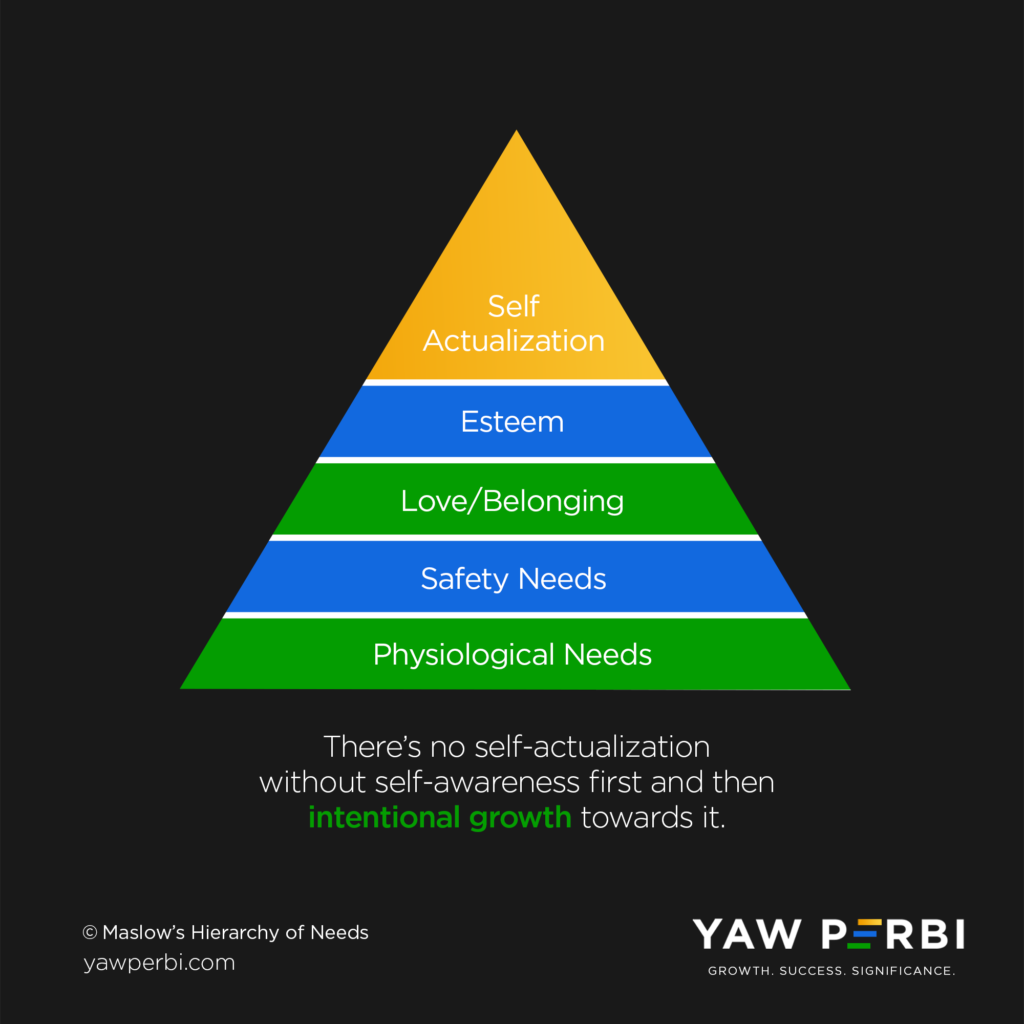
There’s often talk of the apex of Maslow’s pyramid (self-actualization) without the starting point (self-awareness)
Knowing who/where you are now (Law of Awareness) is as important as knowing who/where you want to be (Law of Vision). I hear a lot of talk about self-actualization and not nearly as much about self-awareness; yet we might as well forget about self-actualization without self-awareness first.
CONCLUSION
So when I hear people say “my principles,” I get what they mean, but really the only thing we own is our values and choices. We get to make choices but the consequences of those choices are already predetermined by the timeless, fundamental laws of the universe. The principles that govern life and success are not ours; they are ‘YUGE’ and not subject to our whims and caprices.
It is always a gift when after years of research people are able to capture in a single sentence or mathematical formula one of the laws of the universe–whether it’s Newton (motion), Einstein (relativity) or Maxwell (growth). And even more special when a series of these laws are captured in a single book, like the Bible.
Post Script
The 2021 cohort for the 15 Invaluable Laws of Growth mastermind is almost full. Are there only 15 Invaluable Laws of Success? Probably not. There might be a few more. But the thing is that there’s no going past these 15 to succeed. There will be ‘mirrors’ at our growth table in January (to get self-aware). Then we can measure the gap between who/where we are now and who/where we want to be and chart an intentional plan to close the gap and succeed.
Come to the table. Join the 15 Invaluable Laws of Growth January journey. Register now right here.
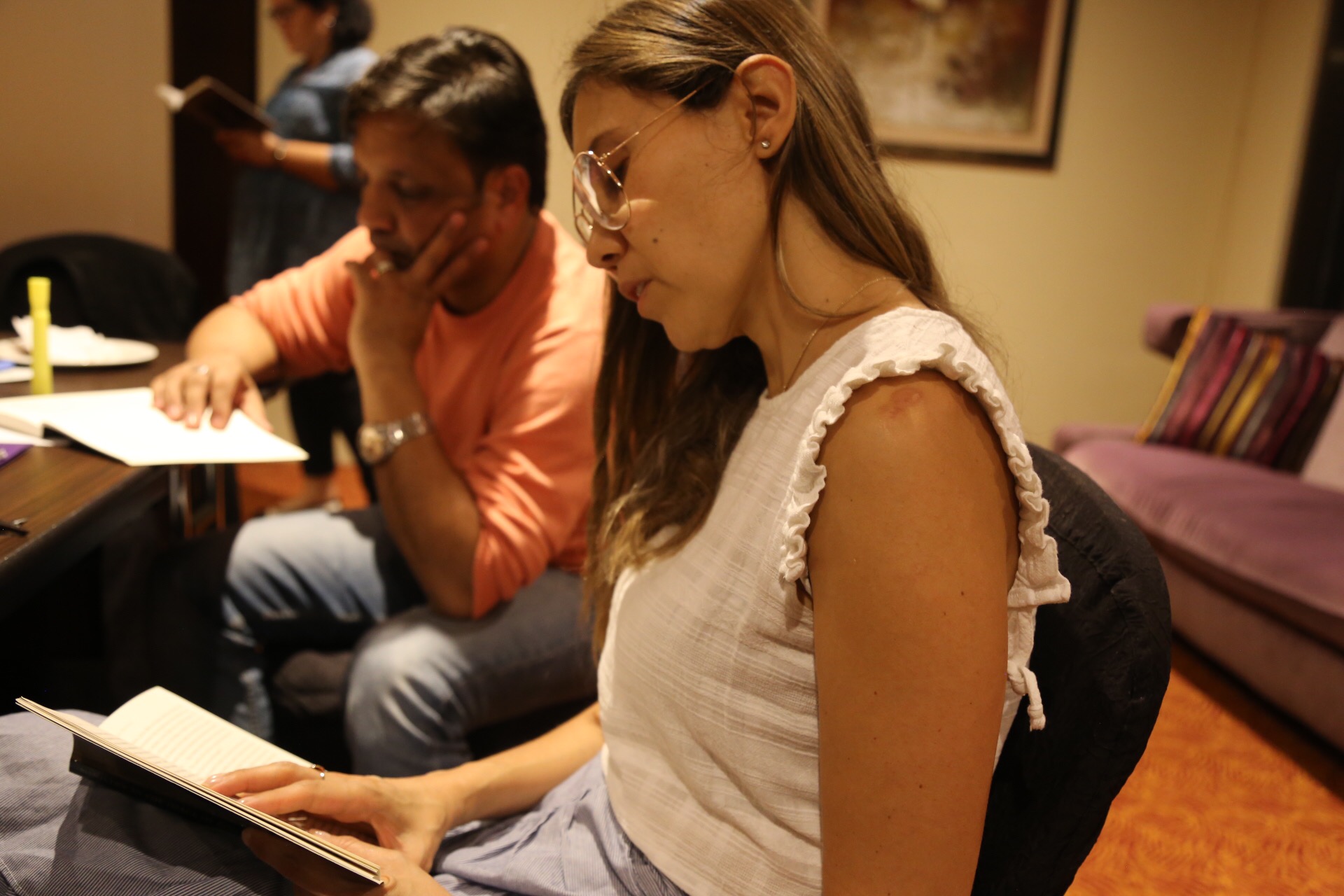
THE THING ABOUT MASTERMINDS | The ’15 Invaluable Laws of Growth’ Mastermind
What do you think you’re capable of accomplishing within the next 12 months? What if I told you you could be more and do better than what you’re thinking through the sheer power a mastermind group?
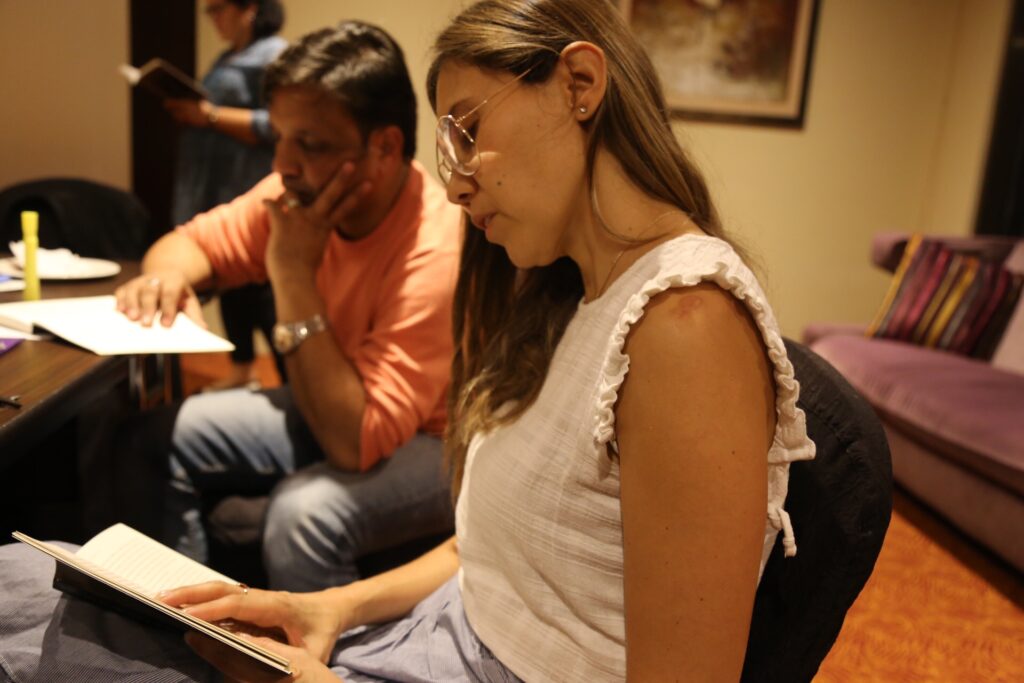
Where two or more come together ‘magic’ happens! A mastermind group of The HuD Group CEOs meeting in Dubai in 2017. This picture shows the CEOs from Colombia, Pakistan and Switzerland. There were about a dozen leaders in this group.
SO WHAT ARE MASTERMINDS?
A mastermind group (often shortened to just ‘masterminds’) is a peer-to-peer mentoring group used to help members learn together, solve problems, birth new ideas and gain clarity with input and advice from the other group members. The concept was coined in 1925 by author Napoleon Hill in his book The Law of Success, and described in more detail in his 1937 book Think and Grow Rich. As iron sharpens iron, mastermind groups are great in holding each other accountable for the goals and outcomes each member comes up with themselves.
With time mastermind groups have also come to mean, as we say at the John Maxwell Team, “a gathering of like-minded people who desire to focus on and achieve their goals through the study of a specific set of information and or material usually from one specific book or author.”
THE MYSTERY OF MASTERMINDS
This is a mystery Napoleon Hill discovered but which I have experienced too, that when two people get together, they somehow create a third, invisible mind whose power is greater than the sum of the first two minds—a MASTERMIND. Where two or more come together, ‘magic’ happens.
WHY ARE WE RUNNING A MASTERMIND AT THE DAWN OF A NEW YEAR?
Every new year is a blank cheque. Life will give you what you write on it. Especially coming after a 2020 pandemic year, starting 2021 with a group of fellow keeners who want to grow, flourish and succeed is the best positive peer pressure you can give yourself. And again right at the start of the year because as an executive education company, YAW PERBI’s value proposition is exponential growth within the first 90 days of 2021 and successes before the year is over.
WHAT WILL A PERSON GET FROM JOINING?
For this particular January-February mastermind, we will be going through each of the 15 Invaluable Laws of Growth and honestly responding to poignant questions that will catalyse our growth and set us up for success.
Each week we will pre-read two chapters of the book and meet every Sunday for 8 weeks to share stimulating insights, vulnerably ask questions and honestly respond, and carve out challenging assignments that will facilitate our exponential growth within the first 90 days of 2021 and success in 2020.
A SECRET SAUCE
Remember my first two questions at the beginning of this blog? First, What do you think you’re capable of accomplishing within the next 12 months? And then: What if I told you you could be more and do better than what you’re thinking through the sheer power a mastermind group? Either way, there’s a reason you are not there yet. In order to succeed, you will need to GROW! Then comes yet another question (questions are a coach’s best friend): Who are you going to travel with for inspiration, mutual encouragement and accountability to get there?
The secret to masterminds working is in the synergy it creates (as explained in the ‘mystery’ above), the loving accountability environment it creates (what you claim is your goal/outcome is taken seriously and you are lovingly held to account) and the Law of Modeling, which itself is the thirteenth law of growth we’ll be studying. The Law says: It’s Hard to Improve When you Have No One but Yourself to Follow. While all of this can happen in a one-on-one coaching relationship the amazing cross-coaching, multi-layered mentoring is phenomenal in a serious group of, say a dozen, people!
WHY ONLY 15 PEOPLE MAX?
So on January 3rd, join a mastermind group of 15 of us walk through ‘The 15 Invaluable Laws of Growth’ together for the early 60 days in 2021. Our mission at YAW PERBI Executive Education is to offer authentic and customized relationships and resources for your growth, success and significance and that is a major reason why this is being tailored to only 15 executives.
HOW DO YOU JOIN?
Visit this link on this website to sign up or write to info@yawperbi.com TODAY. A 20% early bird discount applies from now till 30th December, 2020. I’m committed to your growth, success and significance. Are you? How do you intend to succeed without growing first?
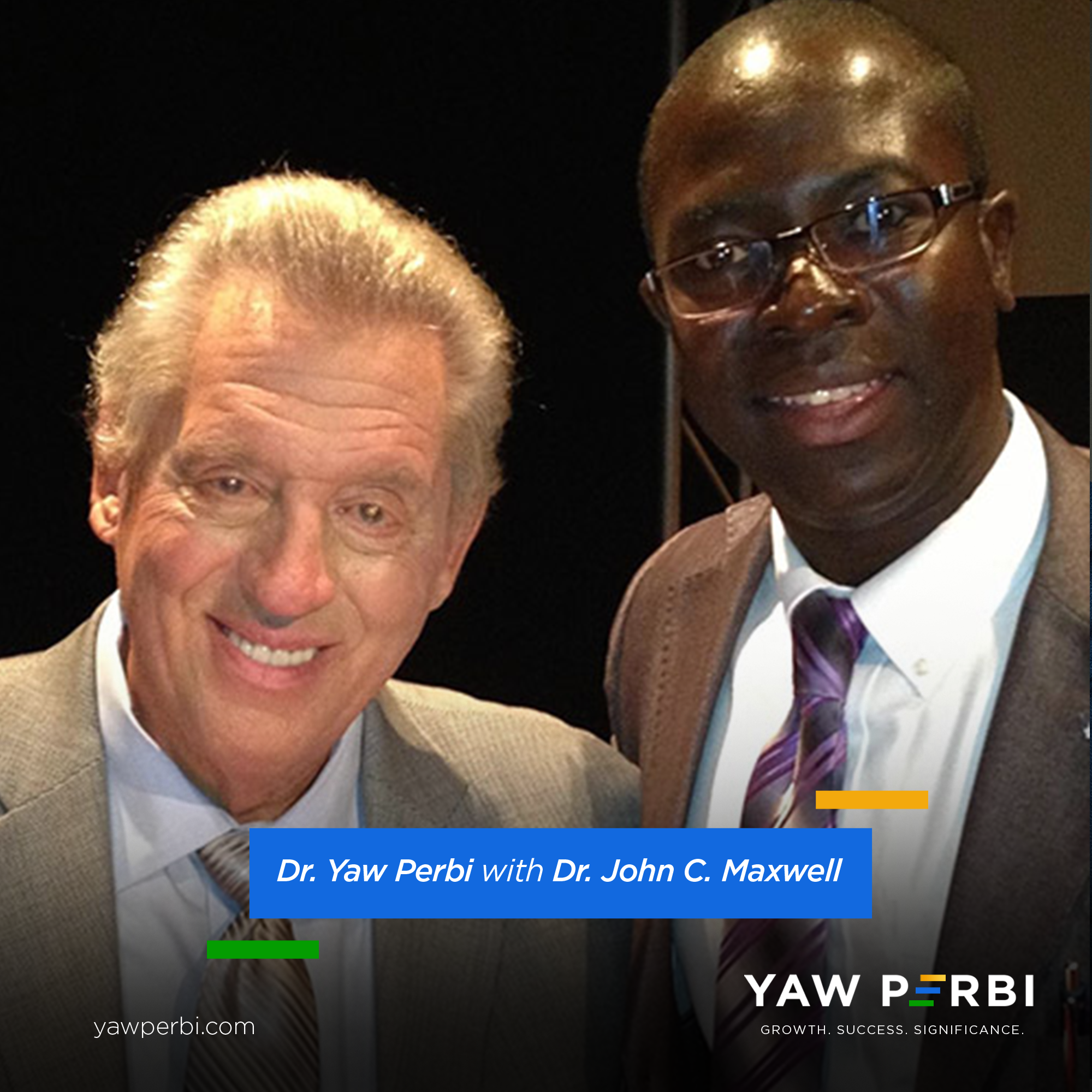
Get Unstuck! & Grow Like Crazy! | ‘The 15 Invaluable Laws of Growth’ Mastermind
“I FEEL STUCK.” This is such a common reason prospective coaching clients get in touch with me. And I know how that feels like; I’ve been stuck many times before in my personal life, marriage, parenting, vocation, finances, faith etc. But there is a way out.
I have been a disciple of Dr. John C. Maxwell for the last twenty years. I would emphatically say John Maxwell’s seminal work, The 21 Indisputable Laws of Leadership, sent me on a leadership trajectory that I am yet to recover from. The book came out in 1998, around the same time I was cutting my teeth in the leader formation industry. When John’s non-profit, EQUIP, came to train leaders in Ghana in 2004, I was still in medical school then but you can be sure I was in attendance with a group of my own mentees from The HuD Group. I longed for the day when I would meet him in person and get to work with him more directly.
D-DAY
The year after my family relocated to Canada, EQUIP, which had been doing some good work in other parts of Canada and was now trying to penetrate the province of Quebec came to my city, Montreal. Somehow we found each other. I was invited to dinner. I would thereafter travel down to EQUIP’s headquarters in Atlanta for further training and sign a partnership between The HuD Group and EQUIP to develop leaders in Canada, Ghana and around the world, certifying them as trained leaders. Even back then, in 2010, I had innovatively began to train emerging leaders in places like The Gambia, England and Australia from Canada online via Skype! In 2020, that has now become the norm; no longer the brilliant cutting edge exception. I soon would become a trainer for EQUIP Canada too.
All this while I was yet to meet John in person. That day finally came, one 2011 day in Pensacola, Florida, when I met John himself face-to-face. I was thrilled! Then in 2012 I grabbed one of my mentees working in bank in Atlanta, Georgia to join me to grace the occasion of the launching of John’s umpteenth book, “The 15 Invaluable Laws of Growth.” We followed up with a private lunch during which I got to ask John a couple of things on my heart (that would be for another blog). The next year I was with John again, now three times in a row, this time undergoing the process to become a certified John Maxwell Coach, Speaker and Trainer.
THE 15 INVALUABLE LAWS OF GROWTH
I share the story of my 20-year walk with John, in literature and literally, first to demonstrate that mentorship works. I would not be where I am in life today, even being touted by a global organization like the Lausanne Movement as a “strategic global leader” but for my walk with Jesus and John. Secondly, while anyone can pick any book of John’s and walk other people through it, it is one thing going through the letter and another thing catching the spirit of John’s works. I’ve got certifiably got both.
For the last couple of months I have felt like some C-level leaders could really benefit from an authentic and deep walk through each of John’s 15 Invaluable Laws of Growth in the form of a Mastermind Group. Whether it’s leaders who feel STUCK or not-yet-stuck (it’s just a matter of time, the day will come!), anyone could use some new impetus for growth following a most crazy year of a COVID-19 pandemic.
FROM CATASTROPHIC TO CATALYTIC
I keep thinking of the phenomenal fresh growth that can happen in forests after they have been decimated by fire. Yes, fires can be destructive in rainforests but sometimes they actually help to replenish ecosystems! While this article won’t get into the depths of the ecological science of it, forest fires are a powerful analogy for the rejuvenation that can happen in each of our our lives after the ravaging of the coronavirus. I enjoyed a Deutsche Welle article that reminded be that “as devastating as forest fires are in the rainforest, the destructive power of fire is necessary for the preservation of other ecosystems, where parts of the natural fauna and flora develop only thanks to the fires. …They consume old and diseased trees, create new habitats and ensure an ecological rejuvenation of the tree population.”
In fact, many plants in the southern US, in the Mediterranean region or in Australia actually need fire to survive. For the coniferous Douglas fir, for example, it survives most fires thanks to its thick bark and then (here’s the magic), after a fire, it will sprout new shoots. The North American lodgepole pine also needs the heat of the fire to open its cones and release seeds while the Australian grass tree needs smoke to open its seed pods.
GROW LIKE CRAZY

That sprouting tree amidst a fire-devastated forest could be you growing amidst the ravages of COVID-19 (Credit: Getty Images/L. Dawson via Deutsche Welle)
So! I’m looking forward to walking with a select group of 15 growth mindset leaders through each of the 15 Invaluable Laws of Growth for the first 8 weeks of the 2021 new year, DV. This 60-day journey will not only get you unstuck but put some fire in your bones for phenomenal growth. Let the unprecedented catastrophic 2020 year be your catalyst for unparalleled growth in 2021. Watch out for details. It’s about time you significantly invested in your personal growth and that of others!
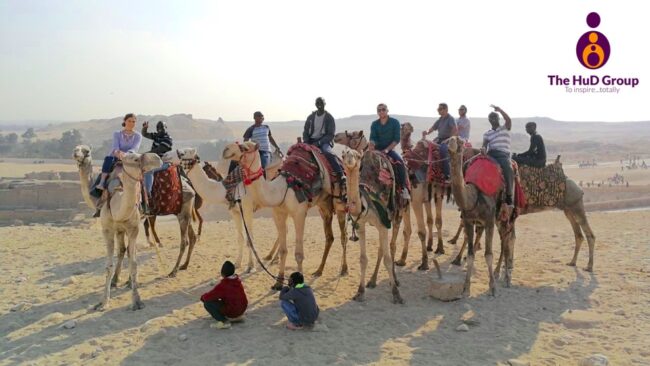
Two Things I Build Differently Now: Leaders and Wealth (Part 1 of 2)
When I was younger I was in a hurry to influence my world in two powerful ways: build leaders and create wealth. I’ve been working on both for the last two decades but now I’m going back to go forward. Here’s why. First, leaders.
WHO WE ARE FIRST
The year was 2003. I was still in medical school, in Accra, Ghana. After I cast vision to a group of eight others that would eventually become The HuD Group and go global, we hit the ground running. With all our Youth Power!, we were in such haste to “inspire and empower young people to discover their God-given purpose and reach their full potential” that we jumped some steps. I was barely 25. Of course, helping people find purpose is exciting, especially for emerging leaders, and everyone wants to have a raison d’être.
However, it wasn’t until my late thirties that it came to me in the strongest sense that something vital comes before purpose. Knowing who we are precedes knowing what we’re here for. Identity comes before purpose. In fact, until during my Master’s in Global Leadership (2016-2019), I wasn’t yet fully convinced that who we are is more important than what we do. But it is! Oh yes, who we are is more important than what we do, not just because we are human beings and not human doings (as is popularly said, tongue-in-cheek, these days) but significantly because who we are really determines what we do and how we do it!
A lot of water has gone under the bridge since those heady days at the dawn of this new millennium and the group has seen many successes, including expanding to two dozen countries on every inhabitable continent in the world! Yet at the same time, we’ve also experienced once-promising trained leaders (in vision, mission, values, strategy and leadership skills) mess up big time because they weren’t self-aware first: of their life narrative, personality, temperament, history/heritage, genogram, values, core beliefs & worldview, emotions (moods, passions etc.), shadows (‘false self’), giftedness, strengths & weaknesses, biases & blindspots, leadership & communication styles, preferences, motivations (extrinsic and intrinsic), habits & tendencies, limits/boundaries, their physicality etc. If you think this is a long list, you’re right. There is a lot of self-awareness, self compassion, self acceptance and self self to be done to not just self actualize but to lead others in a meaningful way.
A FRIEND TO THE RESCUE
My friend Carson Pue and I live on opposite sides of the second largest country on earth (Canada) but one thing often brings us together, in-person or online: leader development. When I came across his ‘Mentorship Matrix’ (diagram above) in his book Mentoring Leaders, I clearly saw pictorially where and how we had tripped. We were in a hurry to get to Step #3 (visioneering/discovering purpose) and hadn’t been spending enough time in Step #1 (self-discovery). And for Pue, as a faith-based leadership trainer, Step #1 consists of double knowledge of both self-discovery and God discovery. There actually is a lot that has been said and written on how we cannot know ourselves without knowing God (the creator in whose image we’ve been made) and vice versa. See here for more.
If we had spent enough time delving into what should be first and core, it would naturally reveal what should happen in Step #2, the emotional and other needs that need to be then satisfied (and how), as well as things one needs to be set free from before attempting to reach forward with discovering purpose and running with it.
I am not alone in this discovery. Increasingly in leadership development world there is this growing area addressing the psychodynamics of leadership, as we are more and more finding the best Ivy-league trained leaders in the top Fortune 500 spaces in the world doing really stupid stuff out of the blue! No one is above Steps #1 & 2. And if we don’t make the time to dig out and cement those foundations well, we are bound to produce shooting stars and not sustainable leadership for the long haul.
GOING BACK TO GO FORWARD
Now we’re back on the drawing board and relaying foundations to ensure that we start right and end well, beginning from the core of self-awareness and the dealing with anything that will entangle, choke or derail the leadership course further down the road. In my Twi language from Ghana there is a word and concept known as “Sankofa.” It literally translates as “go back and get it” and is symbolized by either a stylized heart shape or by a bird with its head turned backwards while its feet face forward carrying a precious egg in its mouth. My leadership development legs may have false-started from Step #3 with fleet feet facing forward but now my neck is turned with my head reaching back to Steps #1 and #2 to pick up that which was vital but I left behind. My ancestral language has a saying, that when you go back to pick up something valuable that you inadvertently left behind, it is no wrong, and well within reason and one’s rights. That is one of two things I build differently now.
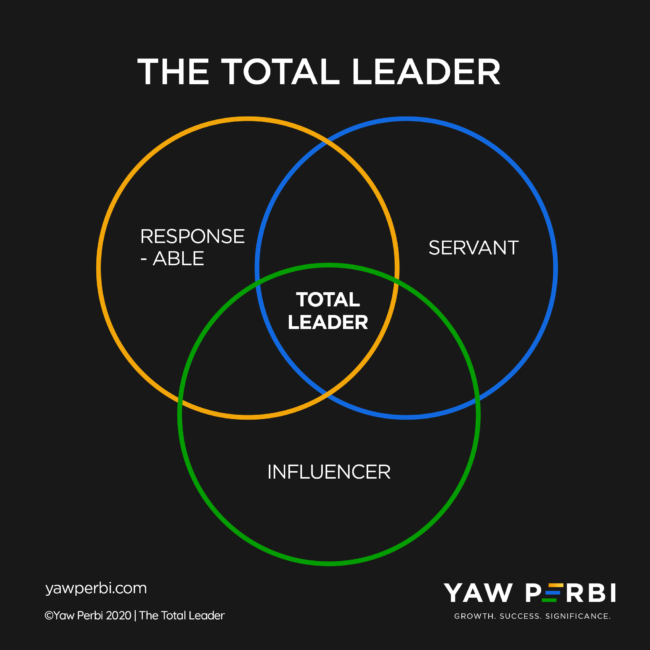
All these politicians are falling over themselves just to SERVE us?
I doubt it. I am skeptical that all these politicians are falling over themselves just to serve us, we the people. After a couple of decades of being a student of leadership, including a Masters in Global Leadership, I came to this simplicity at the far end of complexity that leadership is basically response-ability, service and influence. A total leader is and does all three. But even service has different degrees.
A few years ago some people were very cross with me after I mentioned on a live television interview on Good Evening Ghana that the then Ghanaian president wasn’t much of a leader (in terms of influence). He was very response-able, no doubt. I knew that quite well personally since we used to live in the same residential area and attended the same church. The honourable gentleman was a great servant as well–even as vice-president he was still volunteering to do such ‘menial’ tasks in the community. Such a role model in humility. But his charisma and ability to make things happen in and through others (influence) left much to be desired.
Of course there are those who are great public influencers but can’t even be response-able in their own marriage or toward their children. Such incomplete leaders are asked by the lawyer-turned-preacher, Paul, in the ancient texts, not to vie for leadership in the church. Here is the rhetorical question the trained lawyer poses: “for if someone does not know how to manage his own household, how will he care for God’s church?” A total leader is response-able, serves and influences. Now a focus on servanthood.
SERVANT-LEADER TAUTOLOGY
Ideally, the term ‘servant-leader’ should’ve been tautological as a leader necessarily must be one who serves. Unfortunately, more often than not, it isn’t so. Leadership is often anything but service. In fact, leadership is so much more synonymous with influence that when Robert Greenleaf introduced the term servant-leader around 1970 he literally mean servant-influencer. Here’s what he says in his The Servant as Leader essay back then:
The servant-leader is servant first. One wants to serve first; then one aspires to lead [influence]. This is sharply different from one who is leader [influencer] first, perhaps because of the need to assuage an unusual power drive or to acquire material possessions. A servant-leader focuses primarily on the growth and well-being of people and the communities to which they belong. The servant-leader shares power, puts the needs of others first, and helps people develop and perform as highly as possible.
THE MYSTERY OF MINISTERS
On a recent Lions Inspire Cubs hangout with children (7-14 years) to introduce them to leadership early, some of the cubs literally gasped when they heard me say that the ministers of state that throw their weight around are actually our servants. “Whaaat?!” Yes, minister is the same word as servant. Who could blame these children, for they have hardly seen as humble servants neither the ministers in politics nor ministers in pulpits. I often quip that if I ever became president of a nation I would change the term ‘ministers of state,’ in order to hear it afresh and for shock effect, to ‘servants of state.’
The last couple of months have been a heated political season on both sides of the Atlantic, particularly with my neighbours to the south (the United States border is barely 45 minutes from where I live in Montreal) and in my homeland Ghana. As I’ve seen the passion and commitment in the campaigning, counting of votes, recounting of votes, challenges in court etc. I can’t help but ask: All these politicians are falling over themselves just to SERVE us, we the people? Perhaps a very tiny fraction but largely no; it is mostly to serve their parochial interests. Even for those response-able influencers who are genuinely laying themselves down to minister to us as servant-leaders may I ask: what kind of servant will they be?
SERVANT? WHAT KIND?
Just as “love” is just “love” in English but has at least four variants in the Greek, the ancient Hebrew text is rich with a variety of words for “servant.” Four of these different hues of servant are Ehbed, Abad, Sakyir and Sharath. Let me explain.
1. LOVE SERVANT (Ehbed): This type of servant is totally sold out to those (s)he serves, not so much out of obligation and duty or for financial compensation but pure love. The Hebrews of old were not allowed to enslave their own. If any of their own people—Hebrew men or women—however sold themselves to someone (usually out of dire socioeconomic hardship) they were to serve their fellow Hebrew employer only for six years maximum. In the seventh year they must be let go free, liberally loaded with gifts of livestock, grain and wine. But there was a caveat: “…if your servant says to you, “I do not want to leave you,” because he loves you and your family and is well off with you, then take an awl and push it through his earlobe into the door, and he will become your servant for life (you may read the entire text here). The love servant is one at the complete disposal of the person(s) they serve out of love. Are you (or those you’re voting for) at the complete disposal of the people out of love?
2. SACRIFICIAL SERVANT (Abad): This one has given up a lot to serve. They are characterized by complete sacrifice. This is typically a servant who gives up personal rights, including inheritance, in order to work in the fields or tabernacle (see Numbers 18:7 and 23). The Levites of old were abads. As The Maxwell Leadership Bible puts it, “in a similar way, leaders must sacrifice their rights and stay surrendered to the cause.” Are you this kind of sacrificial servant-leader?
3. HIRED SERVANT (Sakyir): This is the quintessential ‘paid professional.’ In other words, a ‘hired hand.’ Irrespective of what they do, there is a clear understanding that they are hired per hour/day/week/whatever and will receive due compensation. Whether it is fair wages or not is not the object of this discussion; their service is paid for. Remember the love servant conversation above (under ehbed)? When a Hebrew sold themselves to work for another Hebrew they were to be treated as hired hands and then contract automatically ended after six years. It is after this they can choose to become a love servant (see Leviticus text). Unfortunately, the closest thing to a servant I see with many ministers of state and church alike is that of a ‘paid professional’. And you know corporate leaders are not there to serve either when they pay themselves fat salaries and juicy bonuses on the backs of suffering employees, even when their companies are struggling for survival! It’s the money and the trappings of the position that is the draw, not love (ehbed) or sacrifice (abad).
4. MENIAL SERVANT (Sharath): This is the down low of service. This is the most beautiful when done not because the servant-leader has no more nobler service to do but a choice to go down low for the sake of raising the people/mission up high. Sharath is the Hebrew word used to describe Joseph’s servanthood in prison (see here) and Joshua’s attendance to Moses as his aide (see Exodus text). A true leader must serve the people and the cause, irrespective of how down low the role may be. By the way, this same Sharath word in certain contexts can stand for worshipper.
MODELS: ANCIENT & MODERN
Politicians like Nelson Mandela are too few. I remember as a boy when he was released from prison in February 11, 1990 after 27 years! The whole town where I lived erupted with joy and the sound of cars honking was deafening. Mandela sure had influence–he was a leader. Of that day of freedom he said, “As I walked toward the prison gate and was among the crowd, I raised my right fist and there was a roar. I had not been able to do that for 27 years. It gave me a surge of strength and joy.”
But you know what else he had? The spirit of servanthood. That same evening when he spoke to a large crowd at the Grand Parade in Cape Town, he said, “I stand here before you not as a prophet but as a humble servant of you, the people. Your tireless and heroic sacrifices have made it possible for me to be here today. I therefore place the remaining years of my life in your hands.” I don’t know about you but I can’t help seeing an ebed, abad, sakyir and sharath all wrapped up in one in the man, his words and works–from prison to president.
The ultimate example of leader as servant is the greatest leader who ever lived, Jesus Christ. He called himself ‘Son of Man’ and did not just ‘talk servanthood’ but walked the talk. Anyone who could teach as he did and perform miracles and draw crowds of 15,000 some two millennia ago without social media sure had influence. It is he who called his followers who were jostling for political power, to sit at his right and left in their perceived imminent government of Jesus, and said to them:
“You know that those who are regarded as rulers of the Gentiles lord it over them, and their high officials exercise authority over them. Not so with you. Instead, whoever wants to become great among you must be your servant, and whoever wants to be first must be slave of all. For even the Son of Man did not come to be served, but to serve, and to give his life as a ransom for many” (Mark 10:42-45).
I can’t speak for leaders of other faith persuasions but for Christ-followers there is no choice but to love and live and lead like the ultimate servant-leader. Paul writes, “In your relationships with one another, have the same mindset as Christ Jesus.”
CONCLUSION
I initially wrote this piece with a holier-than-thou disposition thinking I was a reasonably good servant-leader myself only to get my bubble burst by my dear wife who gave me painful feedback that I needed to hear: “At home you are more like a boss-servant–a boss who tries to serve. You serve alright but only when you want and how you prefer to.” Ouch! I’m eating humble pie right now.
In the words of my mentor John C. Maxwell, “Leaders must never forget that God calls them to serve. If our Lord [Jesus] could wash His disciples’ feet as a sharath, then how could we frown at becoming an ebed?” So you too, take a long look at the list of four servant types above and a good look in the mirror: which kind of servant are you? Then linger awhile over the lengthy list of those longing for your vote and see whether they are preoccupied with status, salary and stuff or serving. True leaders serve their people towards their purpose; not their parochial interests. I am a recovering boss-servant.

